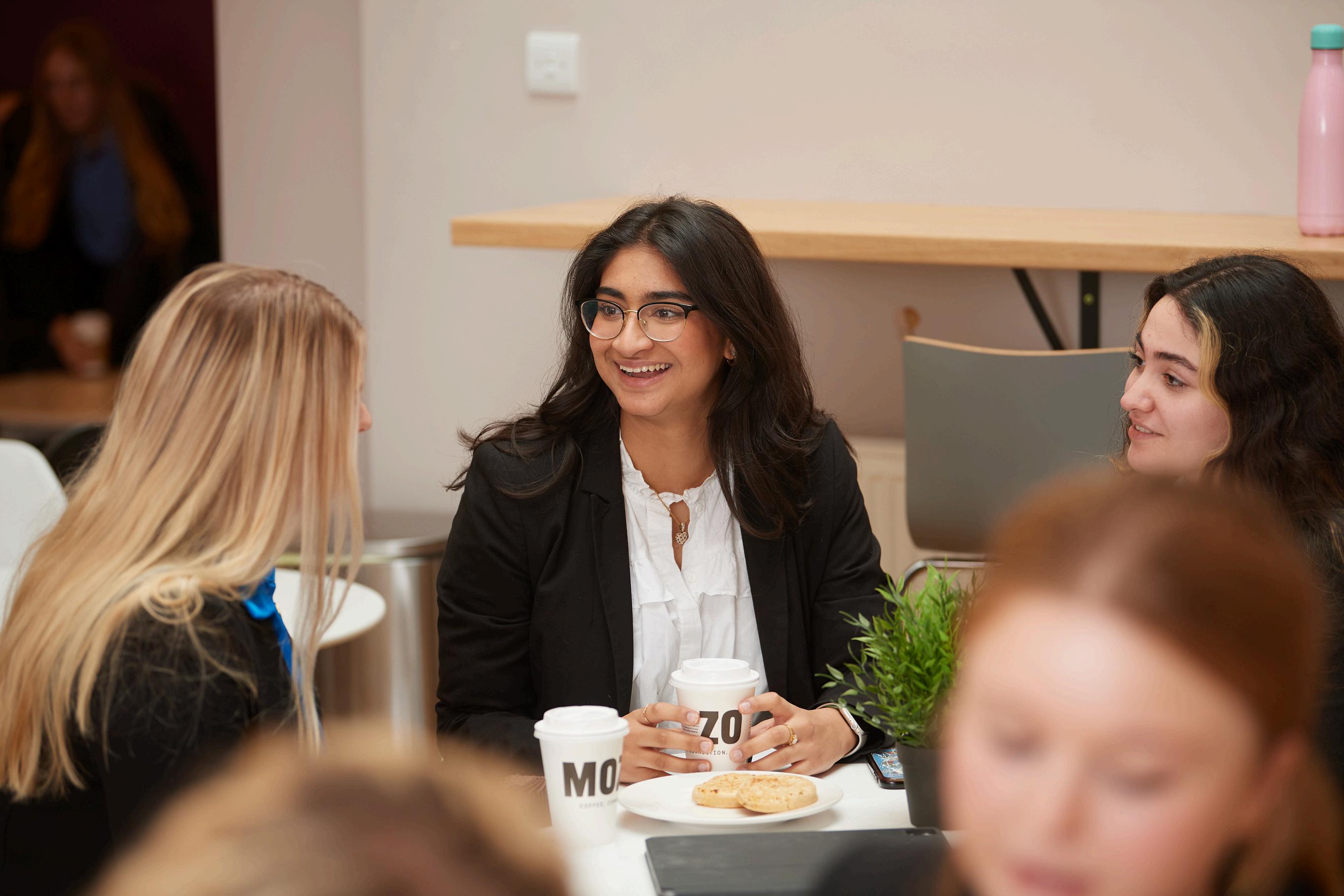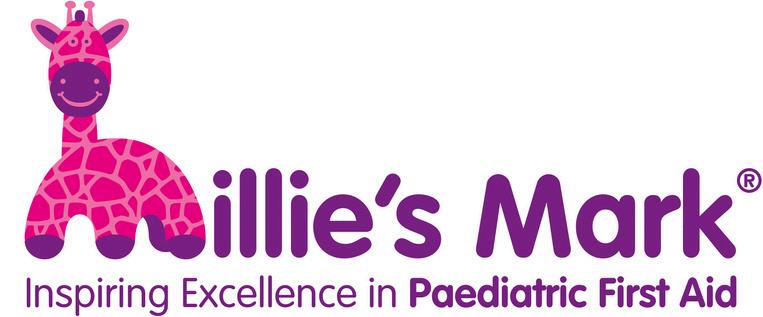SixthForm Prospectus
“Aspire to Be More”




“Aspire to Be More”



Dear Students,
We are delighted that you are considering joining our Sixth Form. AESG is a place where young women like you are encouraged to dream big, work hard, and develop into confident, independent individuals. Here, we take pride in offering a nurturing environment designed to help you excel academically, grow personally, and prepare for an exciting future beyond school.
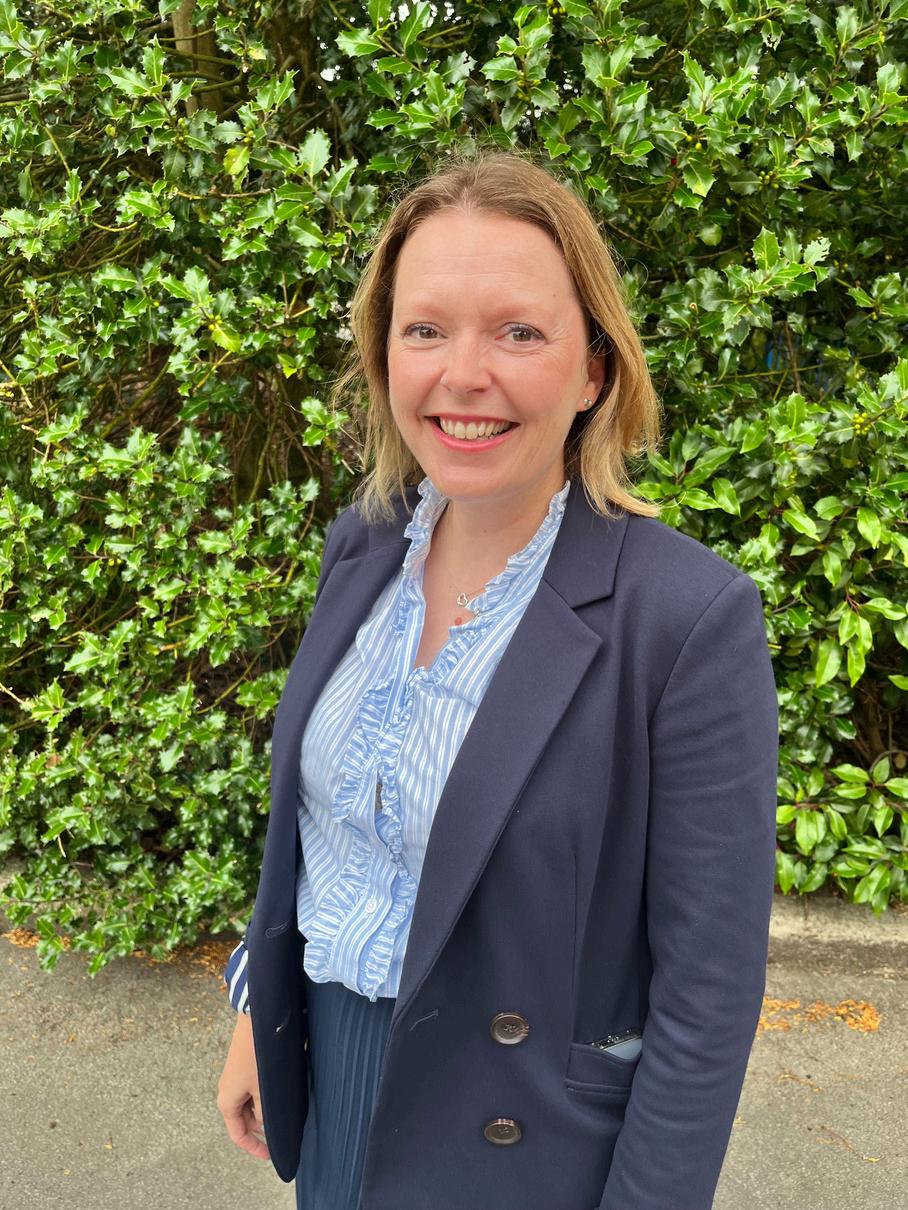
In Sixth Form, we understand that these years are pivotal in shaping your aspirations and ambitions. Our dedicated teachers will inspire and challenge you, while our wide range of A Level courses and enrichment activities are designed to broaden your horizons and allow you to discover new passions. Whether you have clear career goals or are still exploring your options, our curriculum is tailored to help you thrive, preparing you for university, apprenticeship and beyond.
But it’s not just about academic success, our Sixth Form community is vibrant and supportive, filled with opportunities to take on leadership roles, contribute to the life of the school, and develop friendships that will last a lifetime. You will have access to enriching activities such as debating, sports, music, and charity work – all aimed at developing your skills, confidence, and sense of responsibility. We encourage all our students to challenge themselves by participating in our BeMore Programme designed to prepare you for life after the classroom. We hope that you will embrace the time we give to you to develop your moral compass, considering your role in society and offer compassion and service to those in need.
The transition into Sixth Form marks an exciting new chapter, filled with possibilities. Here, you will find a welcoming, inclusive atmosphere where you are free to be yourself and to pursue your interests and ambitions with determination and enthusiasm.
We look forward to welcoming you into our Sixth Form family and supporting you every step of the way as you embark on this exciting journey.
Caroline Wood Headmistress

Dear Students,
Sixth Form at AESG has so much to offer; small teaching and form groups, fulfilling enrichment opportunities and tailored career guidance all combined to support you in preparing for life beyond the classroom.
The broad range of academic options available to our students means that we can build you a timetable that suits your interests and passions. Whether you choose to continue with the academic subjects you already love, follow a more creative path, or opt for subjects that only become available in the Sixth Form, you will have the opportunity to tailor your studies and deepen your engagement, knowledge and skills. Nurturing subject specialist teachers will share their knowledge and experience with you, building strong relationships over shared passions.
Sixth Formers have exclusive use of their own spaces. The Common Room and Sixth Form Coffee Bar create a strong sense of community. New students are warmly welcomed and quickly feel confident and settled. Those who studied with us for GCSE discover a new feeling of greater independence with a professional dress code designed by our students, and the ability to manage their own time. Students can leave the School site taking advantage of our superb location in Alderley Edge village.
A large part of this prospectus is devoted to detailing the academic options available in the Sixth Form at AESG. It is important that you choose the subject combination that is right for you, so take time to read the course descriptions and speak to teaching staff to find out more. Internal and external candidates are both warmly welcomed at our Sixth Form Experience Day. This is a vital part of your decision-making process. It will give you the chance to sample A Level classes, meet teachers and explore the Sixth Form facilities. Cont...
If you aspire to a specific university course or career then do your research; it may be that you are required to take certain courses or combinations in order to access those opportunities. Our Head of Careers and the Sixth Form Team are available for advice on which subjects you might require and which combinations work well. Our job is to support you to achieve in whichever field you choose, and students receive exceptional, individualised guidance in university admissions and apprenticeship applications. The BeMore Programme also prepares you for life beyond School giving you practical skills, a developed and reflective world view, and the interpersonal skills necessary for you to thrive.
A rewarding Sixth Form experience is about more than academic study, and Sixth Formers at AESG have an array of exciting enrichment activities from which to choose. There are many opportunities to get involved with such as Mock Trial, Train to Tutor, Model United Nations, Public Speaking competitions, Debating Club, the Dance Showcase, or our annual Production. Our Sixth Formers are role models and lead members of our Student Committees. Through committees they work with other pupils to respond to pupil voice and enhance school life for everyone. These opportunities enrich your time in the Sixth Form and help you develop confidence and transferable skills, vital assets in the increasingly competitive university application process and jobs market. As you tour the School, talk to our teachers, to our Sixth Formers, to our support staff and you will get a feel for what a close, collaborative and supportive atmosphere we have.
We wish you every success with your GCSE examinations and look forward to welcoming you into our Sixth Form as a new and enthusiastic Lower Sixth student. Good luck!
Ms S Pinder Head of Sixth Form
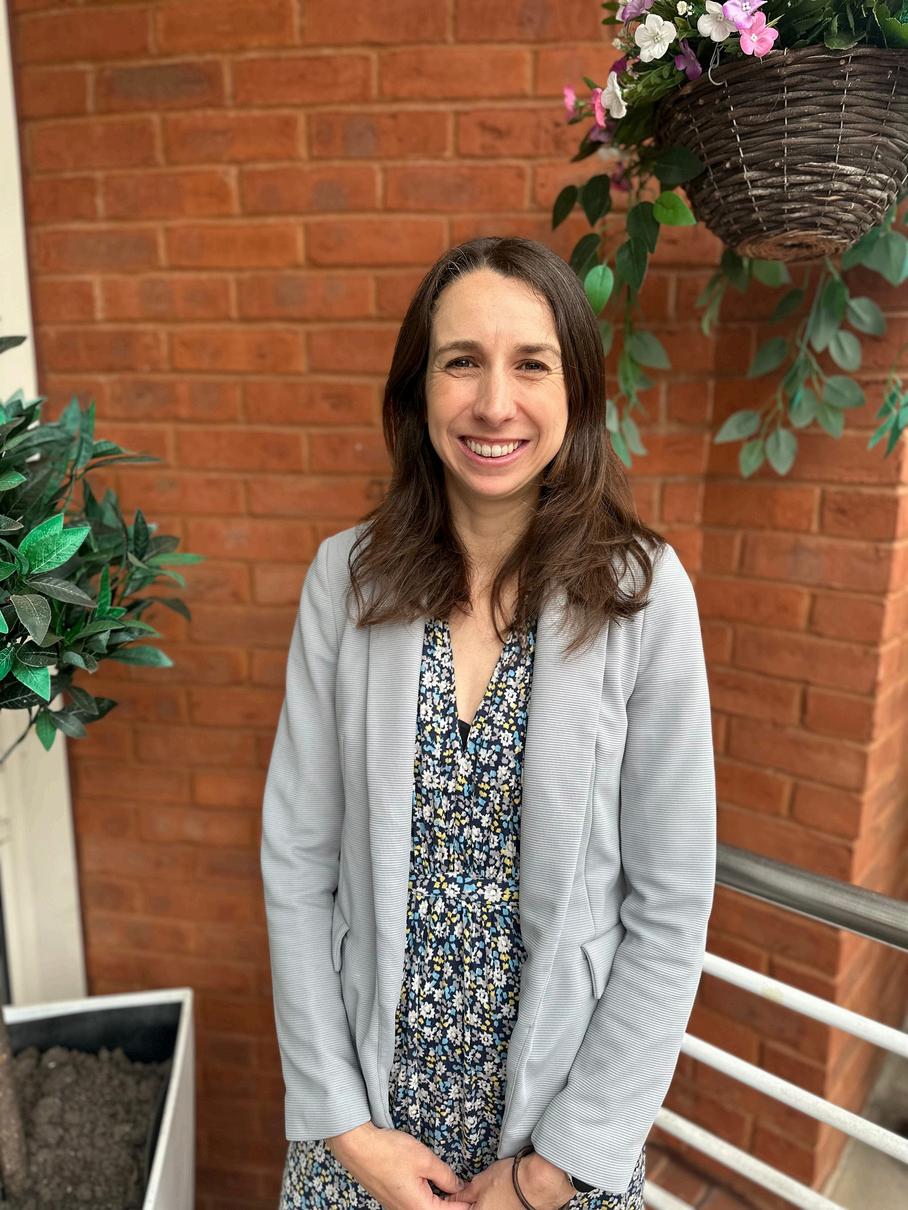
Looking back to when we began our Sixth Form journey, we remember how nervous we were to start our new subjects, but also how excited we were for the new-found freedoms. Whether you're joining from a new school or you've been at AESG for Senior School, it's a big change, but we can assure you that you will always feel supported by your friends and your teachers who will be there every step of the way.
We know that the support you receive at AESG is unbelievable. The warm and inviting atmosphere makes it a place where you can be open and honest with everyone around you. We are all one big family.
The class sizes here are small, which allows you to build a strong student-teacher relationship where you feel that you can approach your teachers about any struggles or difficulties that you may face. There is always one to one help available through a simple conversation with your subject teacher or by attending a clinic to make sure you ’ re always feeling assured.
What makes AESG's Sixth Form special is our ability as students to gain more independence and be heard. We feel comfortable to speak to our Sixth Form Leadership Team about our aims, goals and hopes for the future or even any queries we may have.
We assure you that your time at AESG's Sixth Form will equip you with all the skills you need, whilst making you feel comfortable, confident, and ready to approach further education or the world of work.
We wish you luck in your Sixth Form journey!
Sophie, Emily and Seren
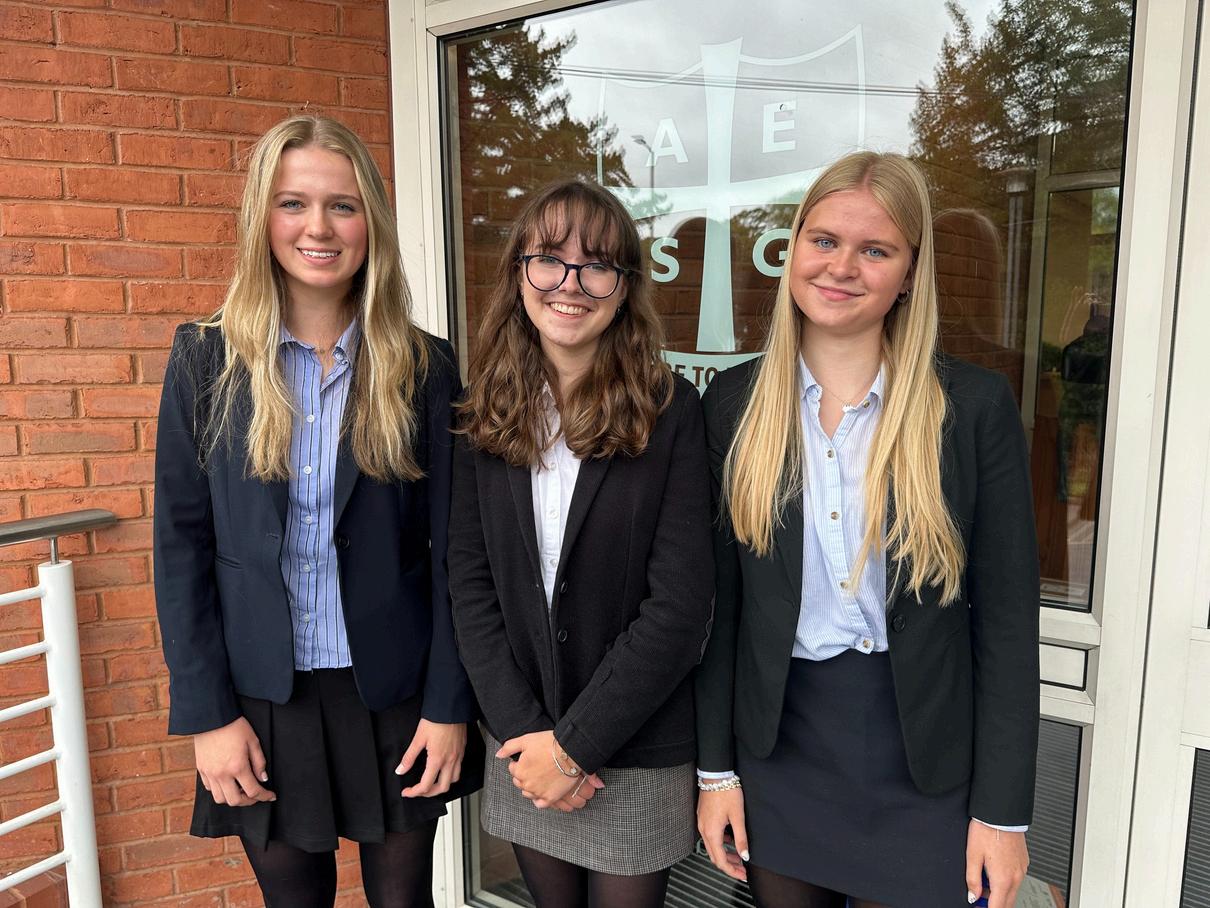
To provide a challenging and stimulating learning environment in which every girl fulfils her full academic potential, and thus equipping girls with the knowledge, skills and learning attributes for success beyond AESG.
To deliver an innovative and futureinspired curriculum embracing the use of technology, thus fostering intellectual curiosity, developing creativity and a passion for lifelong learning.
To welcome girls of all faiths who share our values, and to respect, celebrate and embrace diversity and equal opportunities without prejudice.
To present a supportive, open and inviting environment for girls to explore their spirituality, to encourage reflection, and develop a strong moral compass based on our Christian foundation and principles.
To offer an extensive enrichment programme to enable girls to develop leadership skills, foster collaboration and resourcefulness, grow in confidence and encourage resilience.
To provide a rich and stimulating school experience in and outside the classroom, where girls can explore and develop their interests and talents.
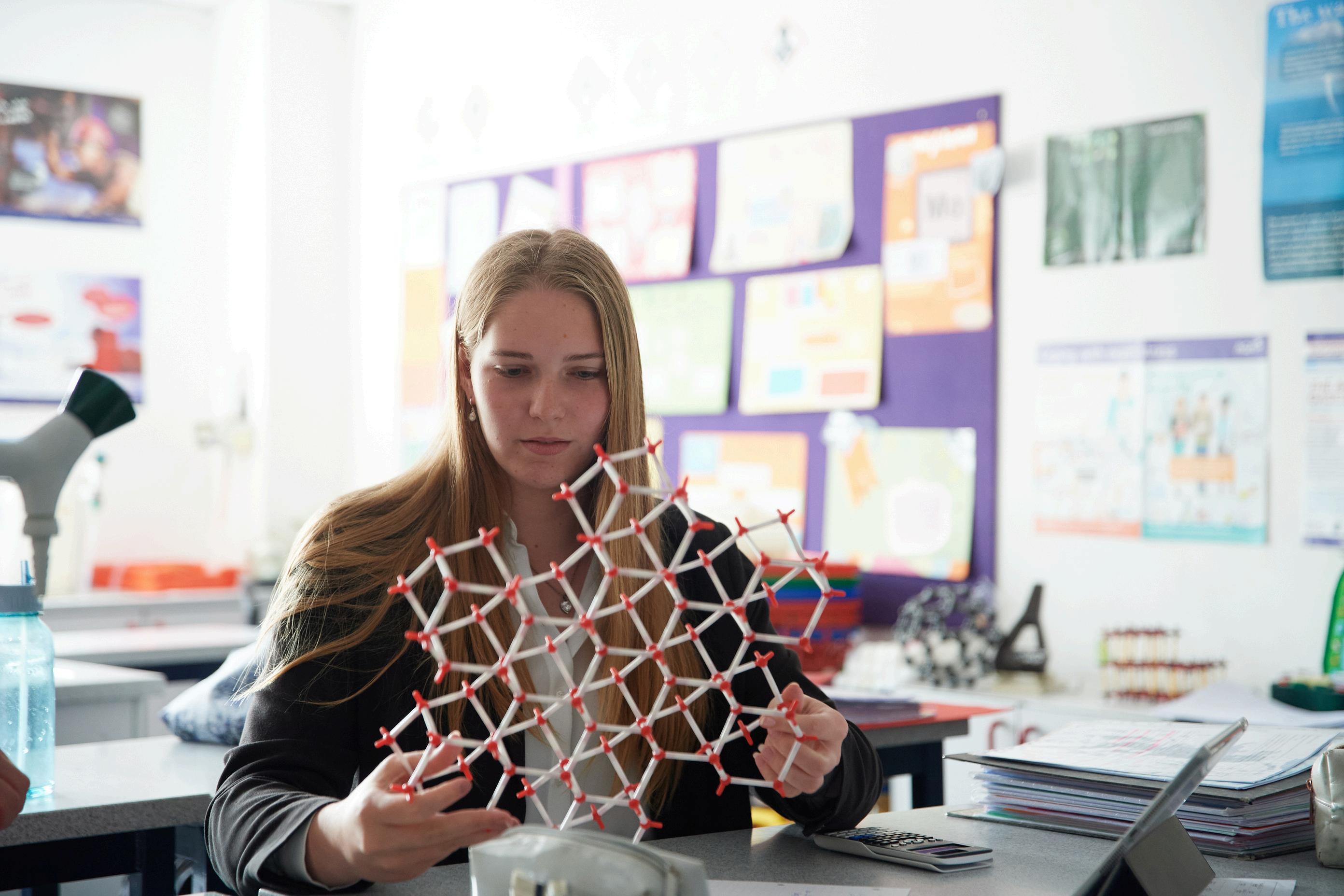
To create a supportive, nurturing and happy environment underpinned by pro-active pastoral initiatives, putting the girls' wellbeing first.
To empower all our girls to flourish as strong women in the 21st Century workplace, to communicate with confidence, and take their place as responsible, active and global citizens bringing about positive change for a more sustainable and equitable future.
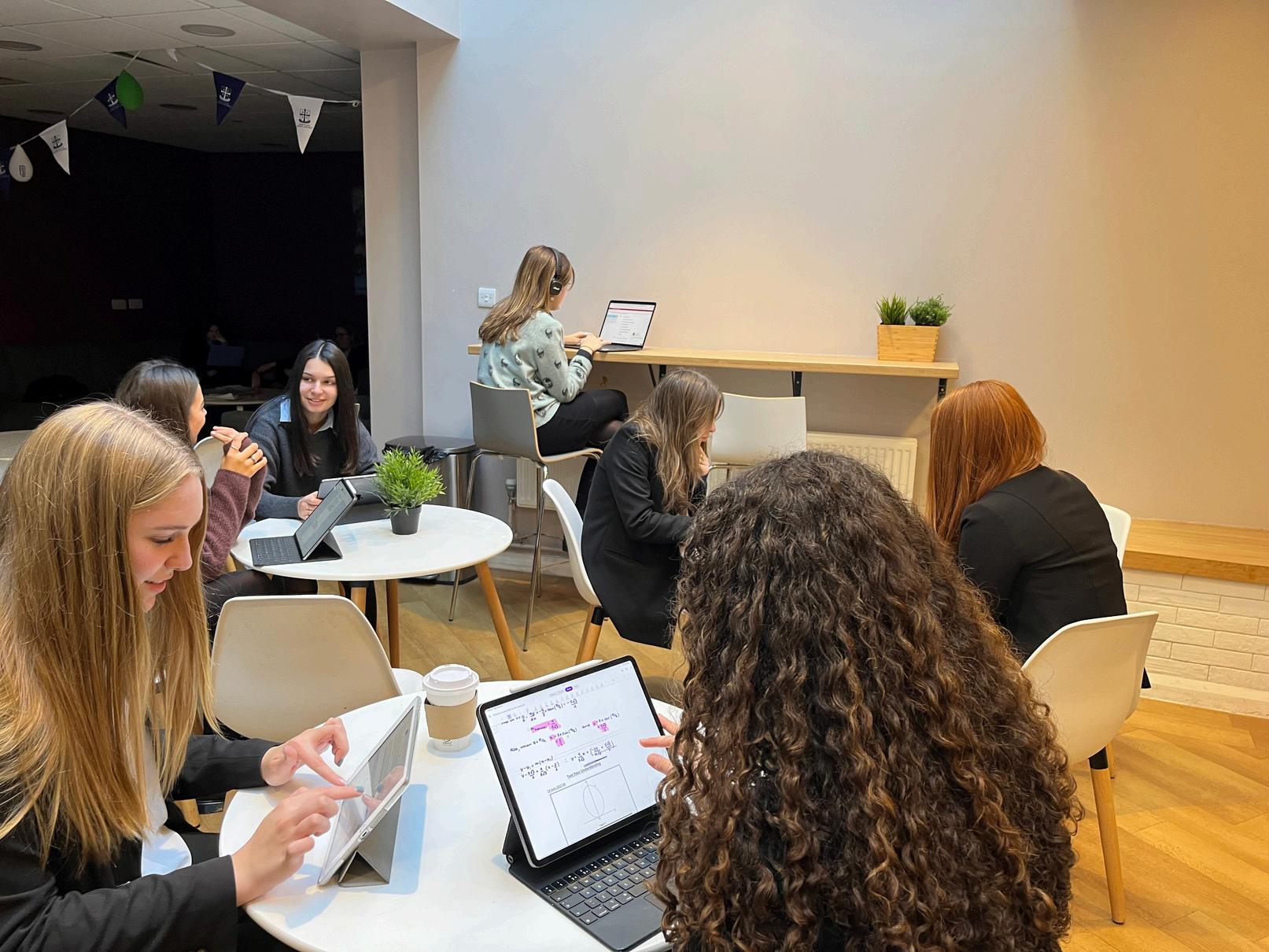
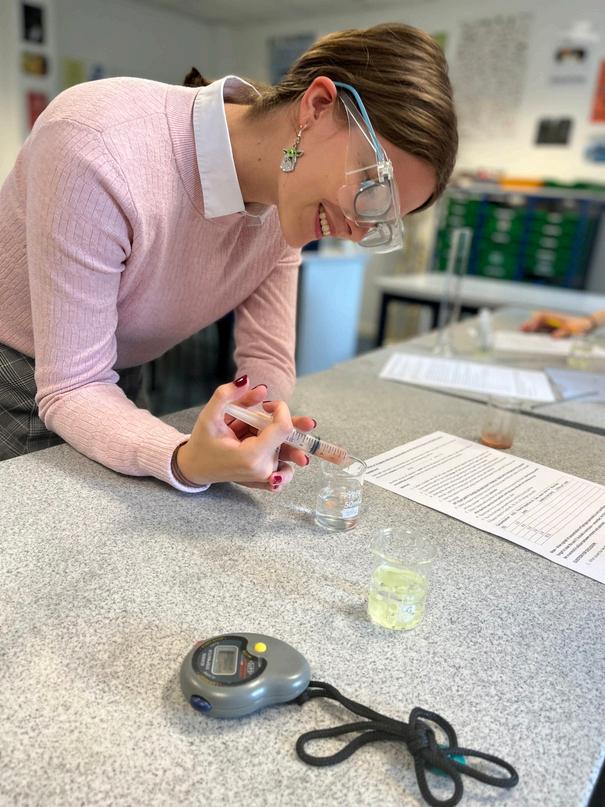
23 different subjects including new subjects such as Government & Politics, Economics
Photography & Psychology
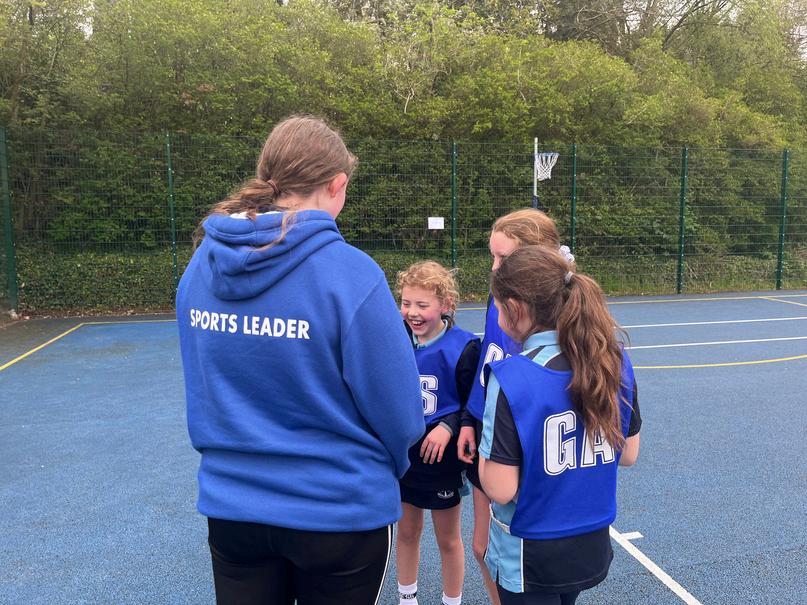
Sports Leaders‘ Award
Nationally Recognised qualification to develop leadership skills

EPQ Independent research project worth up to 28 UCAS points

BeMore Prepared Programme
Develop the skills to flourish in the 21st Century workplace
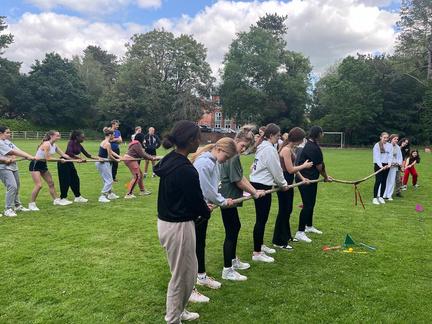
PSHE Preparing students for adult life covering topics such as body image, health & wellbeing
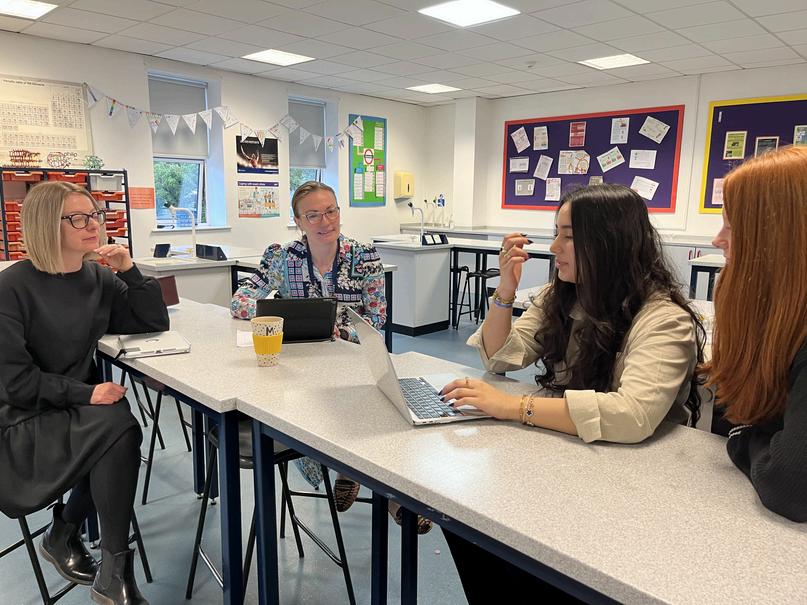
Positions of Responsibility
Head Girls’ Team House Captains Mentors Committee Chairs
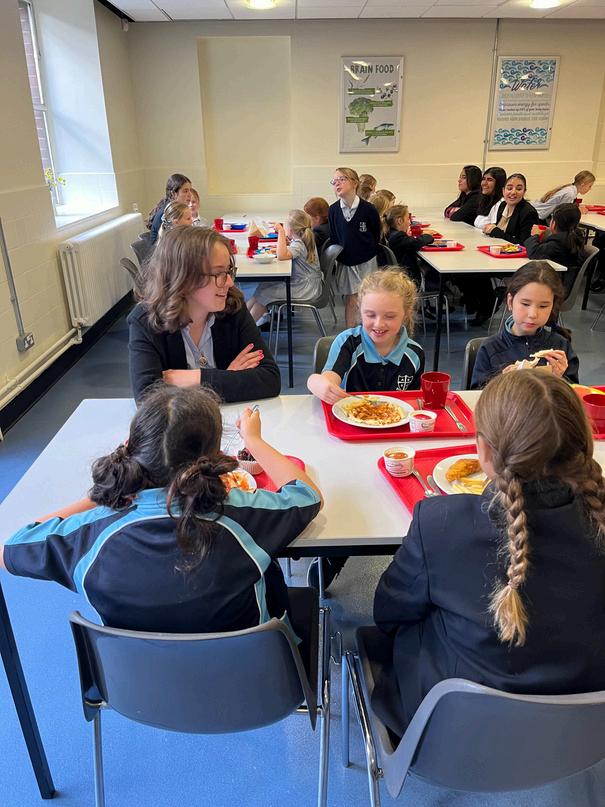
Peer Mentors
Training provided to offer holistic support to younger pupils
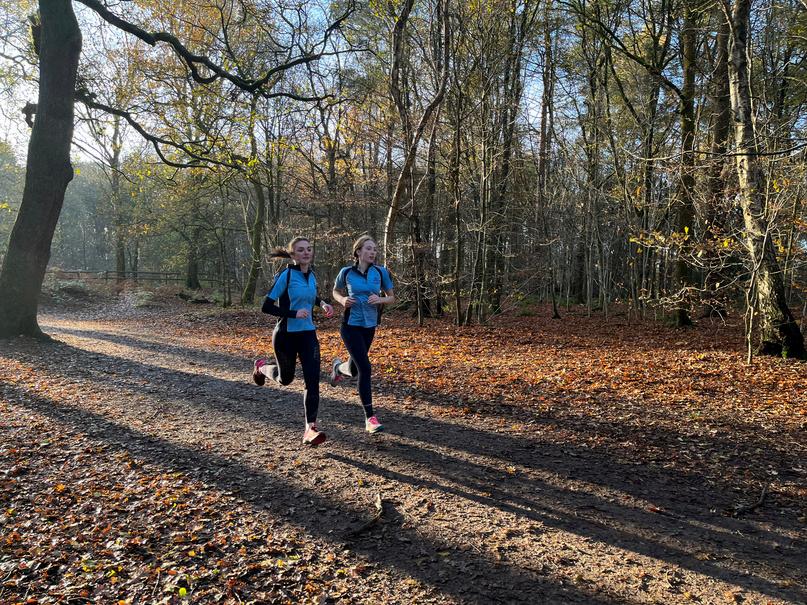
Sixth Form Games
Opportunities to keep fit and healthy and represent the school
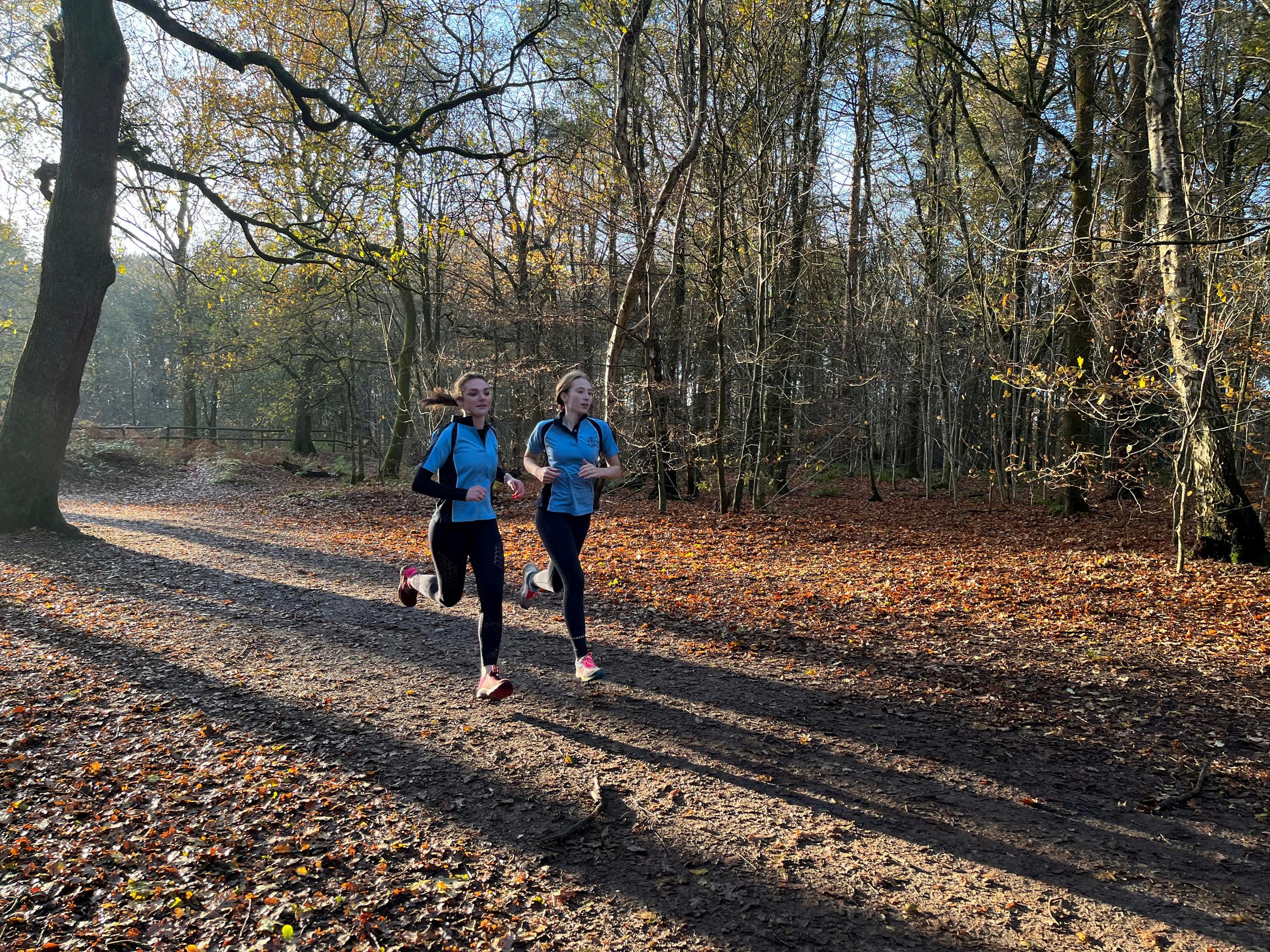
Our bespoke BeMore Prepared programme ensures that during their time in the Sixth Form our students develop the skills they need to flourish in the 21st Century workplace.
The programme is designed in consultation with students and informed by their views about what they need to excel. We ask them what they believe they need in order to feel empowered and confident as they embark on independent life and respond by building for them a carousel of personal development activities. These are divided into termly blocks under the headings BeMore Practical, BeMore Thoughtful and BeMore Human.
While BeMore Prepared will continually evolve in response to requests and feedback from students, typical sessions in each block might include:
In BeMore Practical: DIY and household repairs; cooking on a budget and to treat your friends; car and bicycle maintenance; and managing personal finance.
In BeMore Thoughtful: critical thinking; propositional logic; political engagement; and debating skills.
In BeMore Human: developing empathy; interacting with the very young; interacting with seniors; assertive communication; and local and global activism and engagement.
BeMore Prepared sessions are taught in mixed groups of Lower and Upper Sixth students, strengthening relationships between year groups and allowing students to benefit from a broad array of different experiences over their two years in the Sixth Form. Many sessions take place outside the classroom and involve interactions with other members of our school and the wider community, reinforcing the central importance of our Sixth Form students as inspirational role models and engaged, active citizens.

The Level 3 Qualification in Sports Leadership is a nationally recognised qualification, which blends both practical and theoretical elements across six units. Students complete the course across Years 12 and 13, taking part in one lesson per week, with the expectation to complete some work outside of the classroom.
The course comprises:
Unit 1: Developing Leadership Skills.
Unit 2: Lead safe sport/ physical activity sessions.
Unit 3: Know how to plan inclusive sport/physical activity sessions and events.
Unit 4: Plan, lead and evaluate a progressive series of inclusive sport/ activity sessions.
Unit 5: Plan, lead and evaluate inclusive sports/physical activity events.
Unit 6: Lead inclusive sport/physical activity sessions to a range of participant groups.
The units enable learners to independently lead purposeful and enjoyable sport and physical activity to others. Once qualified, the Sports Leader will be equipped to confidently and competently plan, lead and be responsible for all aspects of the safety of sessions delivered to younger peers within the school or community. Students are provided with the opportunity to develop well sought out skills for their future, whether that be in sport, education or employment.
The benefits and what you’ll gain from this course: 16 UCAS points upon successful completion.
Ability to communicate with others.
Self-esteem and confidence in your own ability.
Ability to work with others as part of a team. Skills needed to manage your own work and personal development.
Ability to identify problems and what to do to problem solve.
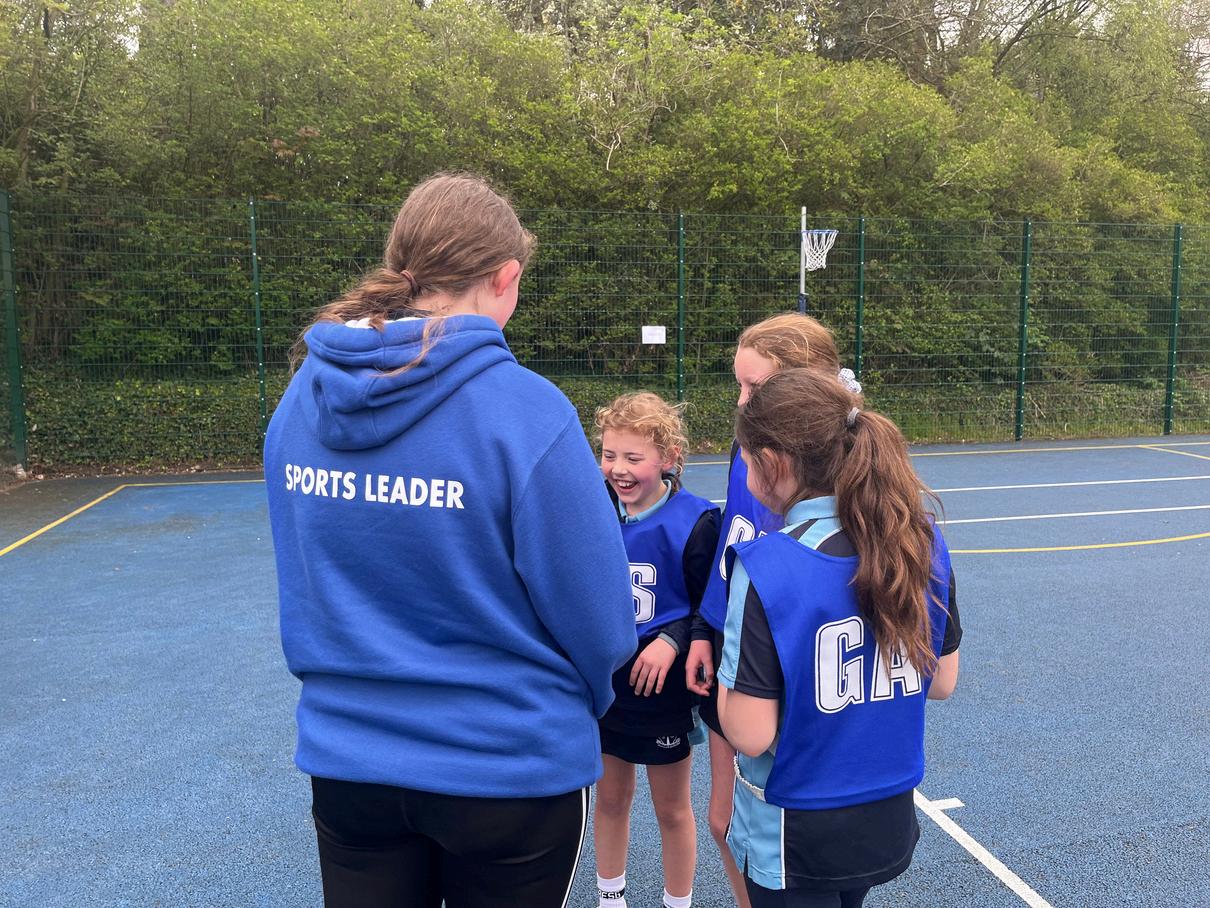
The Extended Project Qualification (EPQ) is a standalone qualification that is highly respected by universities and employers in the UK. It is designed to help students develop the skills needed to succeed in higher education and the workplace.
It is a Level 3 qualification that allows students to explore a topic of their choice in-depth and it is equivalent to half an A-level and is worth up to 28 UCAS points. The EPQ generally involves completing a research project, producing a product, or completing an investigation, with a final outcome of a report and presentation.
Some of the key benefits of studying the EPQ include:
Improved critical thinking and research skills: The EPQ requires students to engage in independent research and critical thinking, which helps to develop skills necessary for academic and professional success.
Increased confidence: Completing an EPQ can help students develop confidence in their own abilities and value their own ideas and contributions.
Improved time management and organisation skills: The EPQ requires significant independent work, which helps students develop time management and organisation skills that are essential for success in higher education and the workplace.
Strengthened academic portfolio: The EPQ provides students with an opportunity to showcase their academic abilities and interests, which can help them stand out when applying for higher education or employment. Some universities may chose to lower their entry offer in recognition of the value of an EPQ.
At AESG, every Sixth Form student is a valued leader and role model. There are a variety of positions of responsibility available which Sixth Form students can take on. These are essential roles through which the voices of pupils and students are heard in line with the school’s vision and aims.
Through the committee system, Sixth Form students take a lead role in designing, developing, implementing and evaluating initiatives within AESG and our wider community. We strongly believe that our students, both collectively and individually, are an invaluable resource for the school. They also gain personally from their involvement, growing in confidence as they develop and demonstrate the BeMore attributes that are the foundation of the AESG Learner Profile.
AESG Sixth Form Positions of Responsibility
Link With The School’s Aims
Academic
Committee
Academic Committee
Digital Leaders Committee
Student Wellbeing Committee
House Committee
Charity and Chaplaincy Committee
Sixth Form Leads / Positions of Responsibility
Academic Leader
Super-Curricular Ambassadors
Reading / Library Ambassadors
Digital Leader
Digital Ambassador
Head Girl
Wellbeing Leader
Wellbeing Ambassadors
Deputy Head Girls
House Captains Spirituality
Equality, Diversity & Inclusion Committee
Careers and Alumnae Committee
Girls
Sustainability (Including Food Council)
Charity & Chaplaincy Leader
EDI Leader
EDI Ambassador
Careers and Alumnae Leader
Careers & Alumnae Ambassadors
Sustainability and Food Council Ambassadors
In addition to the roles available within the committee system, Sixth Form students are invited to act as Peer Mentors. Coordinated by the Wellbeing Leader and Wellbeing Ambassadors, Peer Mentors are trained to offer holistic support to younger pupils and are a hugely valued part of the pastoral and academic support available at AESG.
Training
The following formal training will be available to all Sixth Form students:
Safeguarding training
Mental Health First Aid training
Training will be delivered during the Summer Term of Year 12 to enable students to carry out their roles with greater confidence and expertise.
Students at Alderley Edge School for Girls have the wonderful opportunity to take part in the Yipiyap “Train to Tutor” programme, which trains students how to become peer tutors for pupils within the lower school. During this inspiring Peer Tutor Programme students will be given the skills to tutor in Maths, English and Science and it will serve as a standout addition to their personal statement, equipping them with valuable soft skills, including professionalism, leadership and emotional intelligence.
Ms. Pinder, Head of Sixth Form:
"We are thrilled to be working with Yipiyap. The programme not only boosts academic performance but also builds invaluable skills and confidence in our Sixth Formers. This experience will serve them exceptionally well in their future pursuits."
Ann Morris, Founder and CEO of Yipiyap:
"What sets our programme apart is its simplicity and effectiveness. Once students complete the 'Train to Tutor' course, they are ready to make a positive impact in the lower school, enhancing their peers' educational journeys."
During Year 12 and Year 13 students have a timetabled lesson per fortnight for Personal, Social, Health, and Economic education (PSHE). Our curriculum provides students with the knowledge, skills, and attitudes they need to be healthy, safe, and successful in their lives. We ensure that we provide students with the necessary tools to navigate an ever changing and complicated world. The following themes are addressed throughout Year 12 and Year 13.
Mental Health and Wellbeing
Building Resilience and Coping Strategies
Sexual Health and Relationships
Personal Finance and Employability
Equality and Diversity
Health and Lifestyle
Citizenship and Global Issues
The PSHE curriculum is delivered by specialised teaching staff through a variety of teaching methods, such as discussions, group work, debates, workshops, guest speakers, and practical activities. Students are given opportunities to engage with real-world issues and develop their critical thinking skills.
Students in Sixth Form receive a single or double lesson of Physical Education every Wednesday afternoon, known to the girls as ‘Sixth Form Games’. At Alderley Edge School for Girls, we recognise the importance of our student's health, fitness and wellbeing. Our aim is to foster students’ lifelong love of participation in physical activity. Sixth Form Games focuses on enjoyment and participation.
Girls have the opportunity to represent AESG in recreational and competitive netball and hockey fixtures on Wednesday afternoons, which are inclusive to all. Other opportunities include representing AESG in netball competitions and ISA National tournaments in addition to local fixtures and further afield throughout the school year.
Those girls who do not wish to take part in competitive team sports are offered a wide range of activities such as: badminton, netball, yoga, climbing, dodgeball, tennis, rounders, Gaelic football, ultimate frisbee and use of the fitness suite among many others. We continually seek to diversify our provision to meet the needs and wishes of our students, listening to student voice. The PE department are eager to facilitate some off-site activities, such as taking the girls to a local golf driving range, swimming or learn self-defence in order to meet our aims of lifelong love of participation in physical activity.
Choosing A Levels can, for some, be a daunting prospect. For others, the subjects chosen will seem very obvious and natural. Wherever you are in your decision making process, we recommend that you give careful consideration to the following factors:
Gather as much information as you possibly can about your potential choices. This will involve reading the information contained in this prospectus, visiting subject stalls at Open Evening, and speaking with all the appropriate staff. You should not take it for granted that a subject at GCSE will involve the same sort of course content at A Level.
Your subject choices at A Level must match any career aspirations you have. Certain university courses have very specific entry requirements. Finding this information, by consulting careers staff or looking at university websites, for example, will help you significantly in the future. You can find out entrance requirements through the same university websites.
You should think about choosing those subjects which you most enjoy. These are likely to lead to your greatest chance of success and your highest grades. If you are uncertain about your career choice, you would do well to think about which subjects will be the best at keeping your options open. Think carefully about the mix of humanities, sciences and arts subjects you are choosing. A narrow choice, at this stage, may prevent you from doing certain things in the future. It is important to consider workload at A Level. Think about the nature of the subjects you want to do. How much reading will they involve outside of the classroom? Will you be expected to write at length and produce detailed essays? Is there a large coursework component? What styles of learning best suit you? Remember, whatever choice you make, you need to choose subjects that you really wish to study for the next two ye
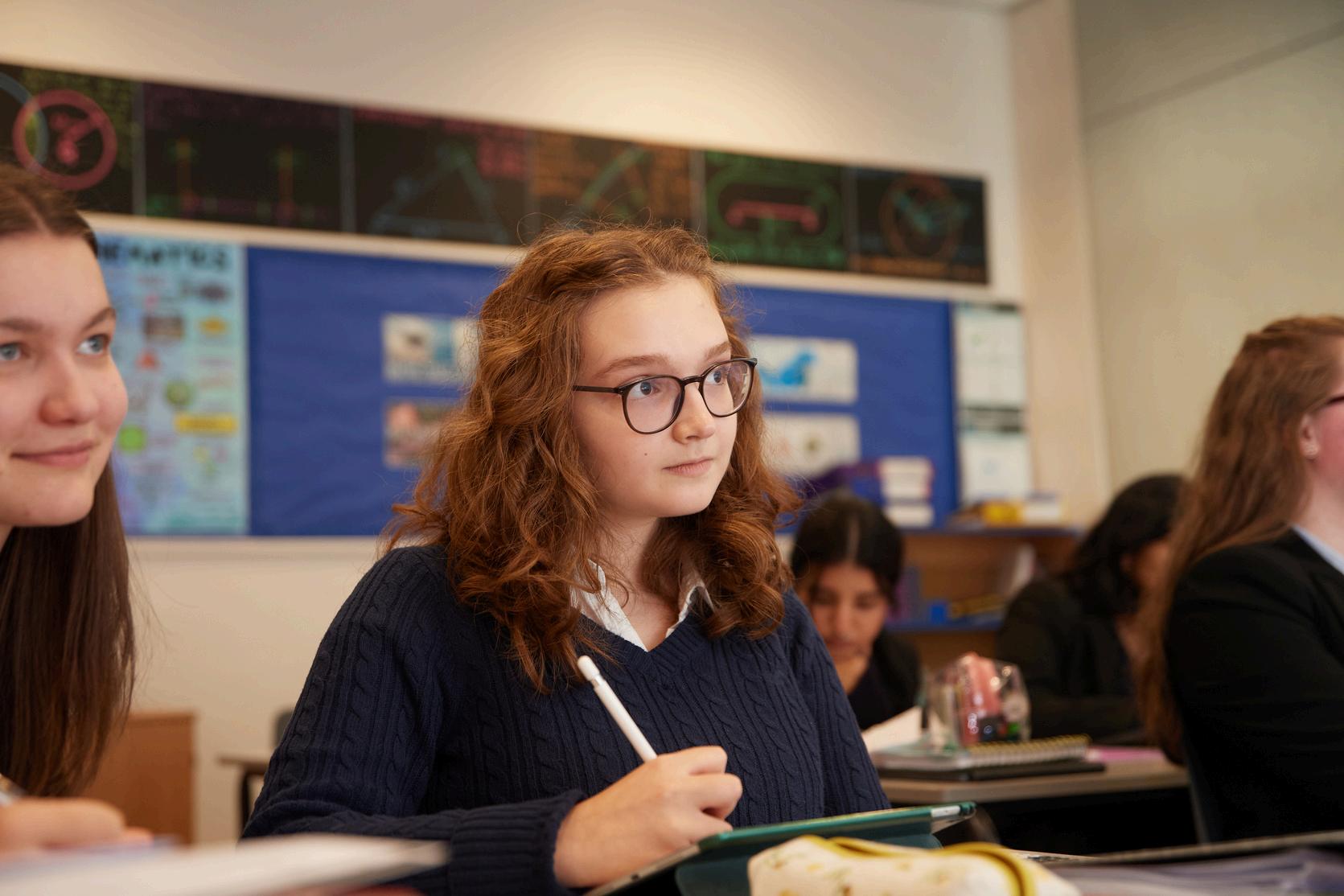
Most students will study three subjects. This enables them to fully immerse themselves in the areas in which they have chosen to specialise and to gain the full benefit of the depth and academic rigour of their A Level courses. Some students may choose to take four subjects, most commonly where both Mathematics and Further Mathematics are studied, and this can be agreed with the Head of Sixth Form where it is the right path for that student.
This booklet gives information on all the courses offered in the Sixth Form at AESG. Students can obtain further information at our Open Evening, through taster sessions during Year 11, and by discussing subject choices with teachers.
At Alderley Edge School for Girls we design the option blocks and timetable after students have made their initial A Level choices. This means that as many different subject combinations as possible can be timetabled to meet the needs our students.
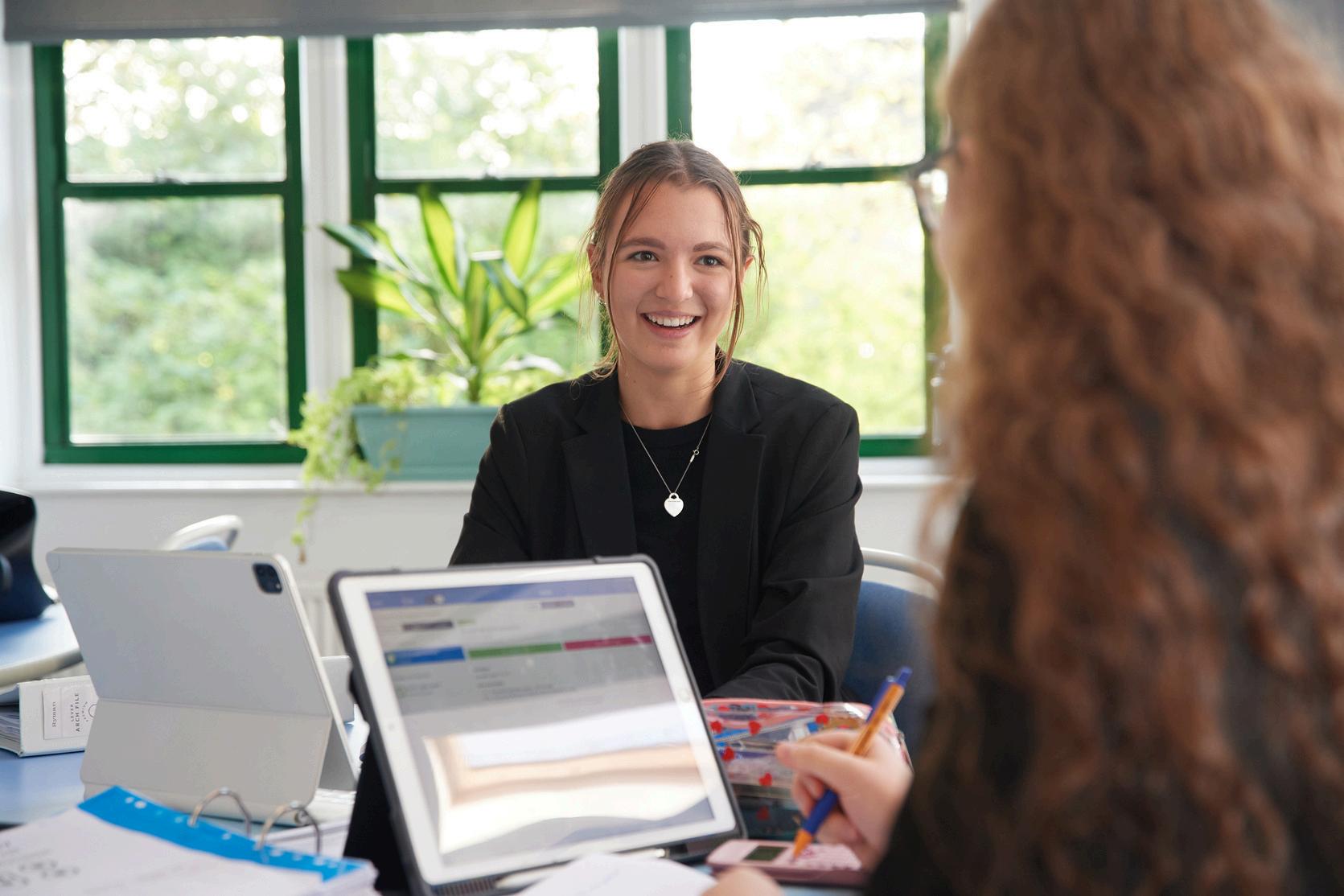
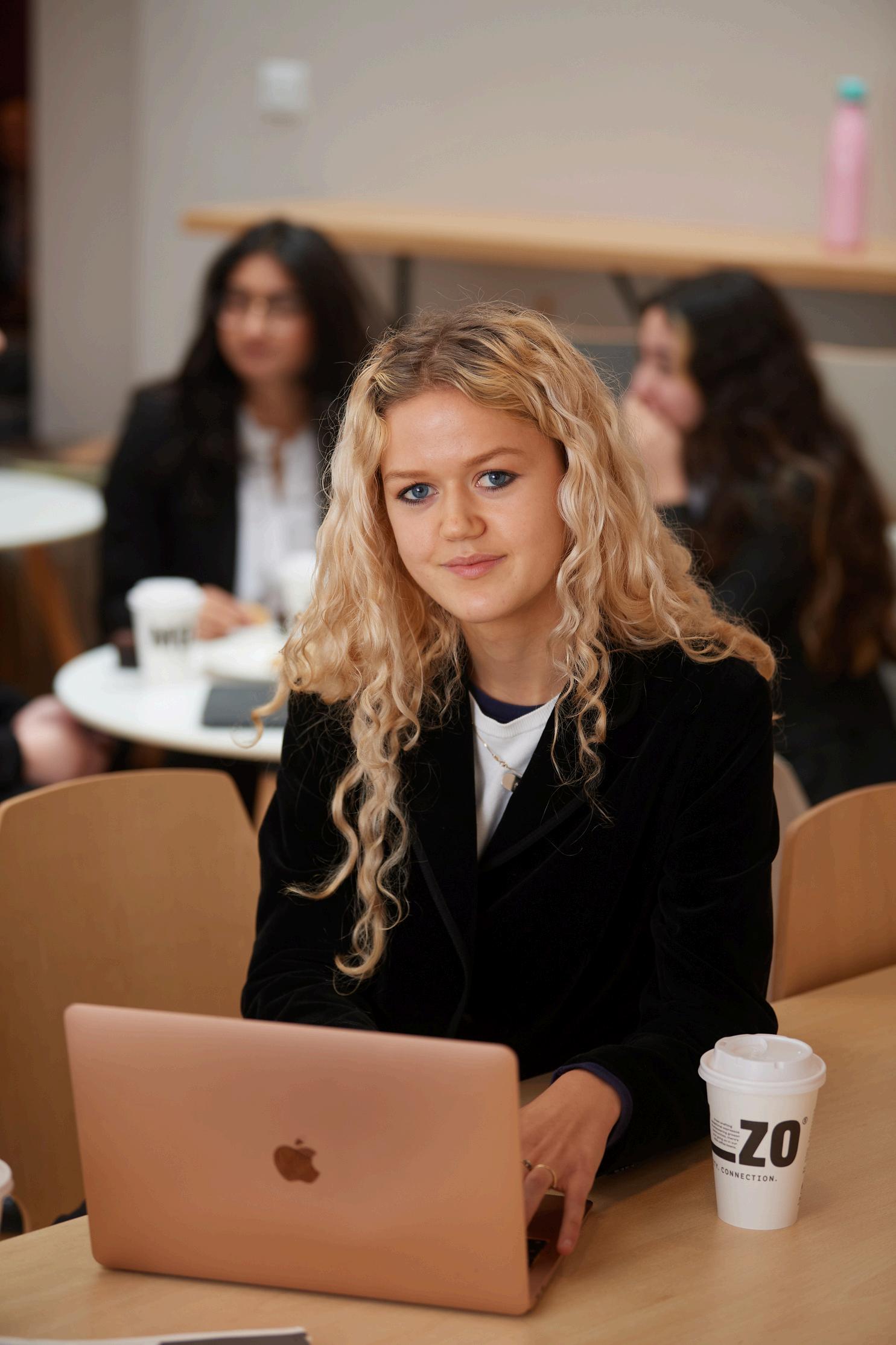
In the Sixth Form, students are responsible for their own learning and progress, for the direction of their studies, and for planning their private study. Teaching groups are likely to be smaller than previously experienced and students are expected to work closely with their teachers.
The rewards for this way of learning are many; students become confident, articulate and adept at using their own initiative. Independent learning is the key to being a lifelong learner, and here at AESG lessons are inspiring, encouraging students to be independent and intellectually curious.
Subjects:
Art and Design
Biology
Business
Chemistry
Computer Science
Design Technology
Drama and Theatre Studies
Economics
English Language
English Literature
Food Science and Nutrition
French
Geography
Government and Politics
History
Information Technology
Mathematics and Further Math
Photography
Physical Education
Physics
Psychology
Religious Studies
Spanish

Art & Design is an exciting subject that encourages innovation and creative self-expression. You will work alongside your teachers to create stunning pieces of art in a dynamic and supportive atmosphere. The Art department is an incredibly special part of our school, a bright, colourful and dynamic area. From day one, you will be considered a professional practising artist and be granted the privilege of working in your own Sixth Form Art studio space.
A highly practical subject, work for each component is holistically assessed at the end of the course using the four assessment objectives set by the exam board.
AO1: Develop ideas through sustained and focused investigations informed by contextual and other sources, demonstrating analytical and critical understanding.
AO2: Explore and select appropriate resources, media, materials, techniques and processes, reviewing and refining ideas as work develops.
AO3: Record ideas, observations and insights relevant to intentions, reflecting critically on work and progress.
AO4: Present a personal and meaningful response that realises intentions and, where appropriate, makes connections between visual and other elements.
Students are encouraged to take part in regional and national competitions such as ARTiculation and those run by ISA Arts. We encourage students to visit galleries and provide opportunities for them to engage with practising artists.
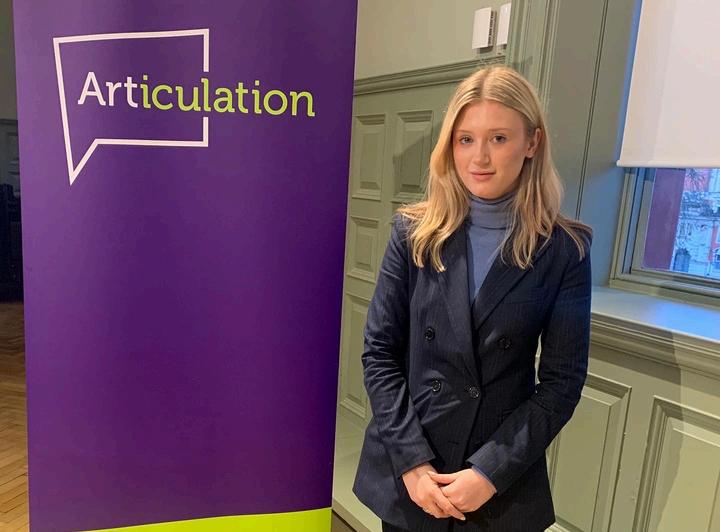

Art & Design could be a good choice if you:
• are creative and imaginative
• have the desire to try new things
• enjoy exploring and experimenting
• like to investigate artists, new art forms and styles
• want to stand out from the competition in an increasingly visual world

Where will this lead?
Students go on to study Art Foundation or degrees in Automotive Design, Architecture, Game Design, Graphics, Fine Art, Illustration, Interior Design, Marketing, Textile Design and Theatre Design.
In addition, when applying for other subjects, having an A Level in Art & Design can set you apart from other applicants.
Leading people in any field are those who can think creatively and innovatively. In fact, a strong artistic background can cultivate many transferable skills.
The course is extremely diverse; it covers all of Biology from the molecular level all the way up to the ecosystem level. Students will build upon their knowledge from GCSE and go into far more detail about each topic than they would have thought possible. Students will also have the opportunity to go on a residential field course. You will learn about the impacts of farming on the ecosystem and how to sample different populations.
There will be three examination papers:
Paper 1 assess the four topics that are taught in Year 12 and makes up 35% of the total A Level.
Paper 2 assess the four topics that are taught in year 13 and makes up 35% of the total A Level.
Paper 3 assesses content from the 8 topics above and makes up 30% of the total A Level marks.
At least 10% of the marks will require the use of mathematical skills.
In the first year there are six assessed practicals, which must be completed by all students. This is followed by a further six assessed practicals in the second year. Each practical will cover certain assessment criteria which will be assessed by your teachers.

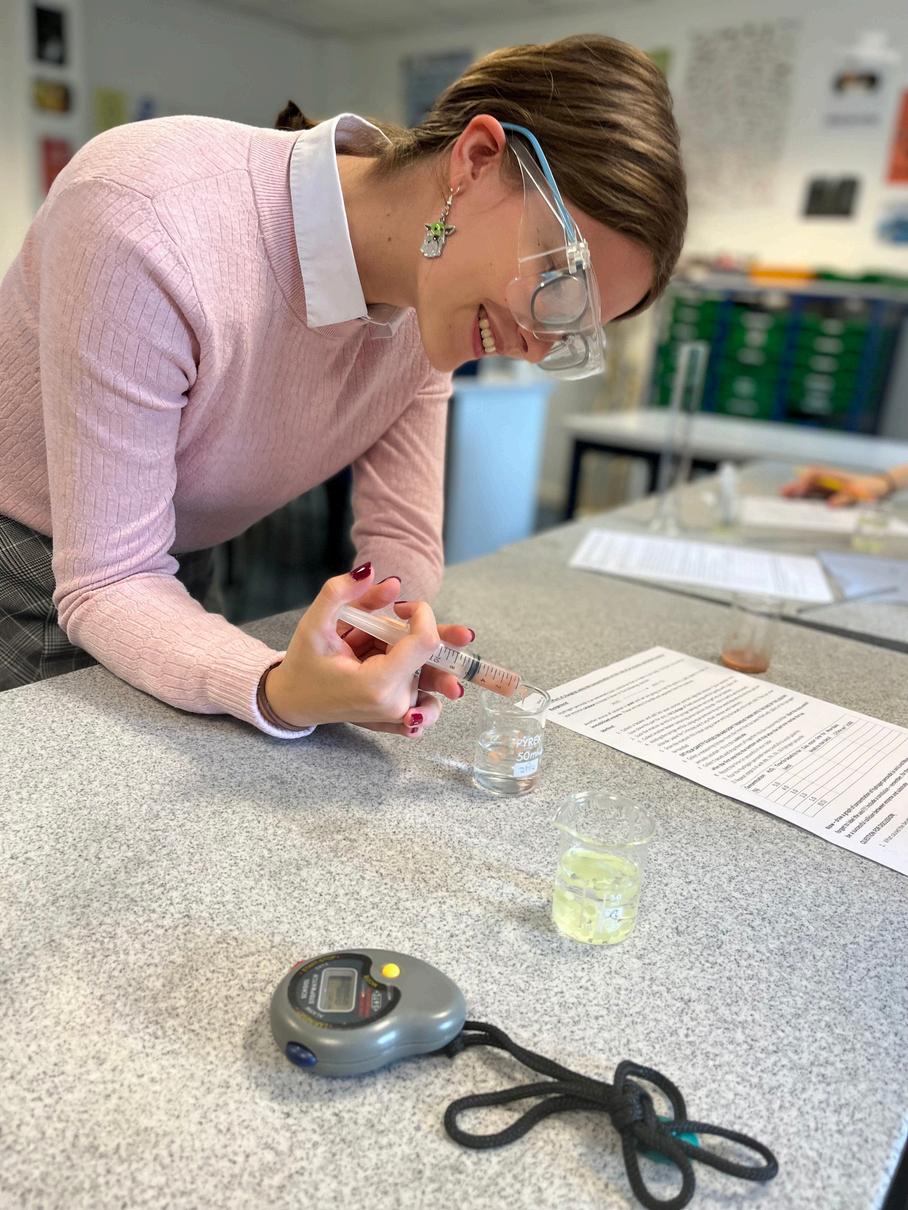
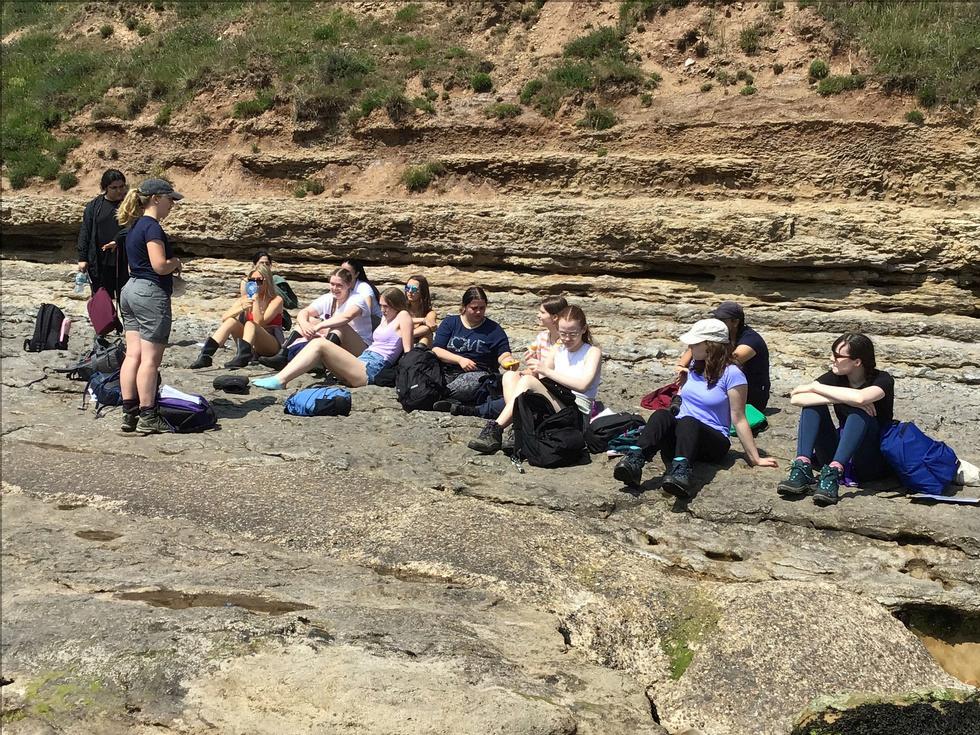
Biology Clinic – weekly support
Biology Olympiad – National Competition
Biological Sciences Review – Magazine
Field trip to the Cranedale Centre
Do you love the natural world and want to find out how organisms interact to ensure a stable environment?
Do you want to discover how different organs work together to ensure the stable environment that is needed for life?
Are you intrigued by how DNA in our cells act as the code for life that instructs ribosomes how to make the proteins that determine your physical characteristics?
You will find this out and a lot more by studying A-level Biology.
In order to prepare you fully for the A Level course, the Biology Department runs a residential Field Studies Trip in June of the Lower Sixth to North Yorkshire. This will provide you with the opportunity to work in the field alongside ecologists who are experts, to obtain an understanding of the ecological techniques and mathematical skills required for the A Level course. The approximate cost of this trip is £250.
Studying Biology at A Level is helpful for anyone considering a career in Medicine, Dentistry, Pharmacy, Physiotherapy or another medical field. It is also possible to continue to study Biology at university working in research or to specialise in one of the disciplines that are touched on as part of the A Level course, such as Genetics, Pathology, Ecology or Marine Biology.
A degree in Biology can lead to a career in Research Science, Health Care, Education, Journalism, or Management.
Real life businesses are at the centre of the course. We use a variety of techniques and resources, including guest speakers, to make the course particularly relevant and engaging. Through studying Business you will develop critical thinking skills and develop your ability to analyse and evaluate. Business students are required to maintain a good understanding of current events including: changes in the economy, news around high profile companies, updates to employment law and environmental pressure groups.
The AQA Business Specification is currently under development, with the new specification set to begin in September 2025. We are awaiting further details from AQA. The assessment will consist of written examinations, focused on specific topics to aid examination preparation.
The Young Enterprise Company Programme provides a real-life learning opportunity that introduces young people to the realities of the world of work.
Students work in teams to set up and run their own Young Enterprise student company under the guidance of a Business Volunteer. Teams make all the decisions about their business, from deciding on the company name and managing company finances to selling to the public through pop up shops and the Young Enterprise unique e-commerce platform Trading Station.
AESG has had great success with Young Enterprise, becoming regional finalists in recent years.
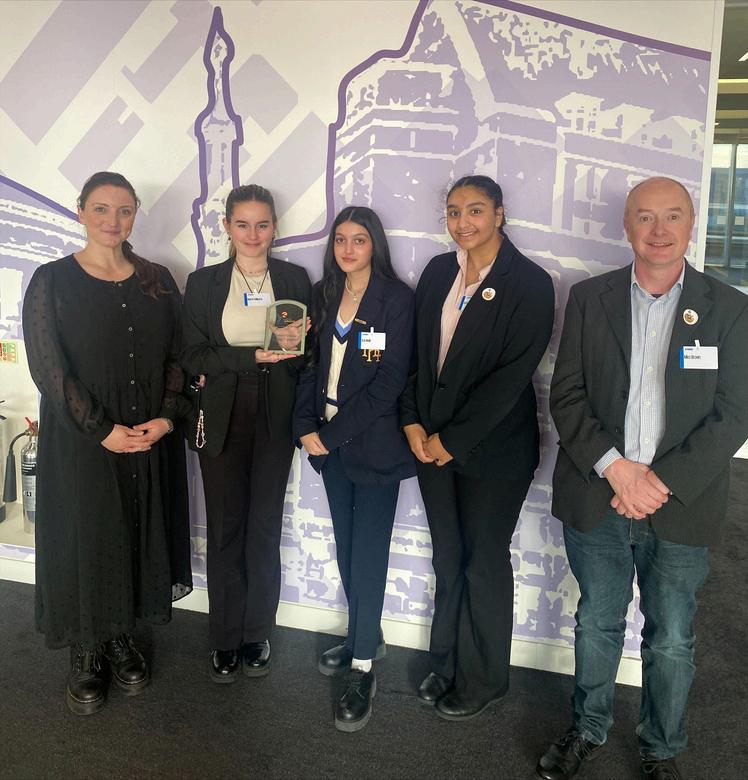

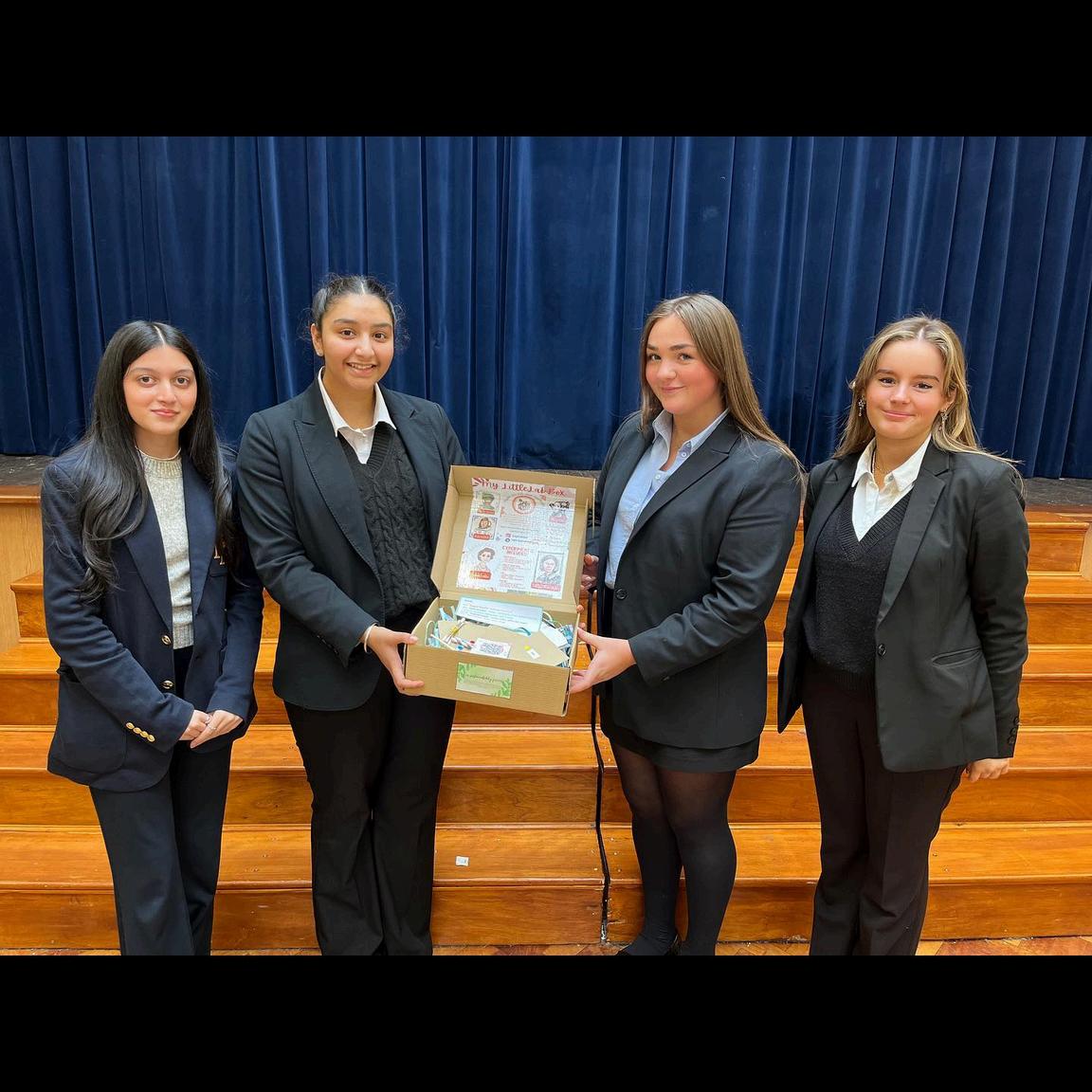
• Are you interested in the wider world?
• Do you think about how you spend your money?
• Are you interested in corporate social responsibility?
• Do you want to develop entrepreneurial skills?
If you answered yes to any of the above, then Business may be the course for you!
There are a wide range of university degrees that relate to business, such as: Management, Accountancy, International Relations, International Business, Human Resources, Marketing, Economics, Industrial Economics, Banking, and Business itself. Careers include working as a Merchandiser, Buyer, Market Analyst, Market Researcher, Financial Advisor or Management Consultant.
In addition, if you are motivated to help others or work in a social context, you could work for charities or not-for-profit organisations, local or central government or the NHS.
The course is very diverse, covering the three strands of Physical, Inorganic and Organic Chemistry. It provides the opportunity to develop practical skills and understanding of theoretical concepts.
An A Level in Chemistry is highly rated by universities as an entrance qualification. It develops useful skills, both practical and investigative, as enabling students to learn how to be objective, how to reason and how to solve problems. Chemistry also helps you to understand current events, including news about petrol and fuels, pollution, the environment and technological advances.
Assessment comprises three 2 hour papers. Paper 1 will assess Inorganic Chemistry and relevant Physical Chemistry topics. Paper 2 will assess Organic Chemistry and relevant Physical Chemistry topics. Paper 1 and Paper 2 will have short and long answer questions and relevant practical skills will be assessed. Paper 3 will assess practical skills, data analysis and all the A Level content and will include multiple choice questions.
15% of the overall assessment of A Level Chemistry will assess knowledge, skills and understanding in relation to the practical work carried out throughout the course.
A separate endorsement of practical skills will be taken alongside the A Level and will be assessed by your teachers as you complete 12 required practicals. The assessment will be based on direct observations of competencies in a range of skills that are not assessable in written examinations.
Chemistry Olympiad
Pharmaceutical laboratory trip
Science Ambassadors
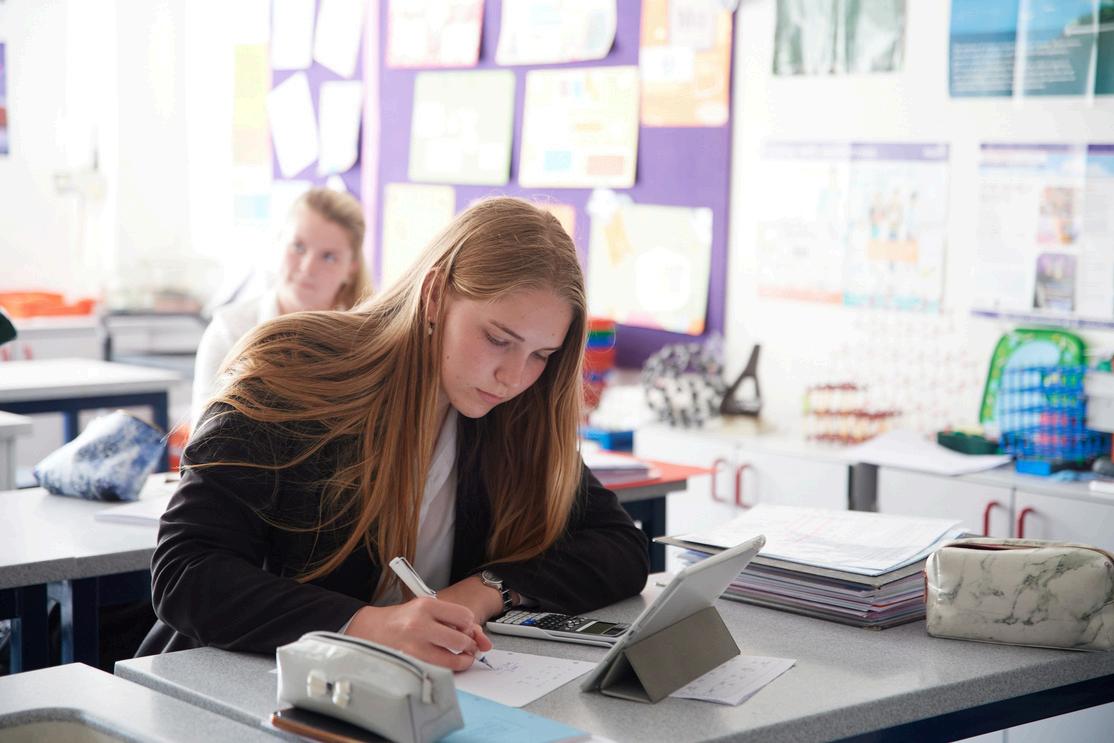


Chemistry is the central science that enables us to understand what everything is made of and how it is made; chemical reactions keep us alive and provide us with everything we have and use.
Chemistry is everywhere in the world around you! It’s in the food you eat, clothes you wear, water you drink, medicines, air cleaners... you name it.
Anyone who is curious about the world around us must surely want to know more about the wonderful world of Chemistry (and perhaps enjoy the odd whizz and bang!) The A Level course is intellectually challenging and the regular practical work reinforces the theory and develops key practical skills.
Chemistry is essential for courses such as: Medicine, Veterinary Studies, Forensic Science, Chemical Engineering and Pharmacy. A degree in Chemistry can lead to a whole range of careers such as:
Research Scientist e.g. Pharmaceuticals, Cosmetics Production or Sales and Marketing of chemicals e.g. dyes, plastics and detergents, Environmental Analysts Material Scientist, Fuel Scientist
The aim is to give you a thorough understanding of how computers work, the principles of software development and some coding. You will also develop an understanding of algorithms, cybersecurity and network topologies. There will also be a focus on developing the key computational thinking skills of abstraction, decomposition, pattern recognition and algorithmic design. As part of the course, there is a section on the impact of Computer Science on society, looking at the legal, ethical, moral and social aspects of our modern lives. The project is a substantial piece of work which assesses a variety of different skills including the development and demonstration of computational thought processes.
Computer Systems assessment weighing 40%
Algorithms and programming assessment weighing 40%
Programming project assessment weighing 20%
Robotics Team mentoring and coaching. With two different robotics teams providing a variety of engineering and programming challenges you will have the opportunity to share your experiences with the younger students. This is a fantastic opportunity for you to give back and a great experience for your university applications. Not to mention the coach t-shirt!
This year we have a two-night residential visit to Bletchley Park and Cambridge to learn more about STEM careers for women and computing history and have some hands on programming. Possible destinations for the next two years include London, Berlin or Disneyland Paris.
Over the coming years the department will be looking to visit local tech businesses to gain an insight into the careers to which Computer Science could lead.

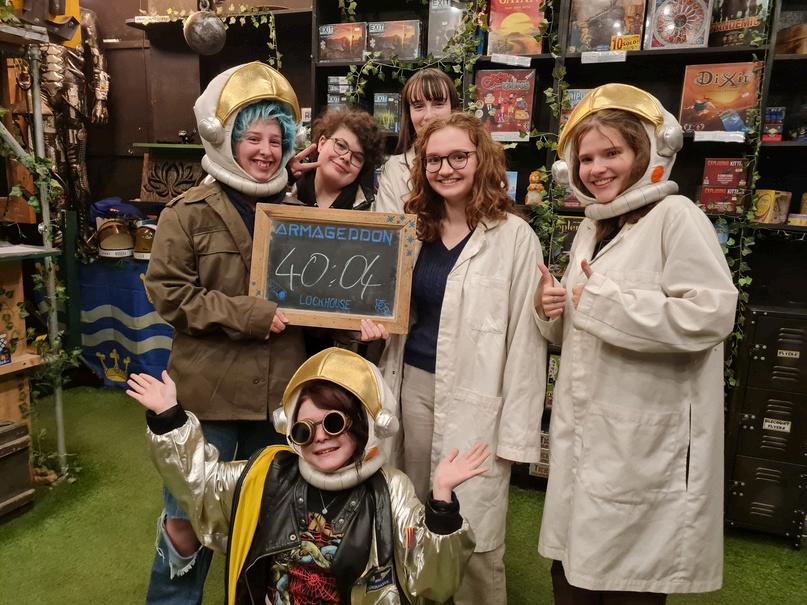

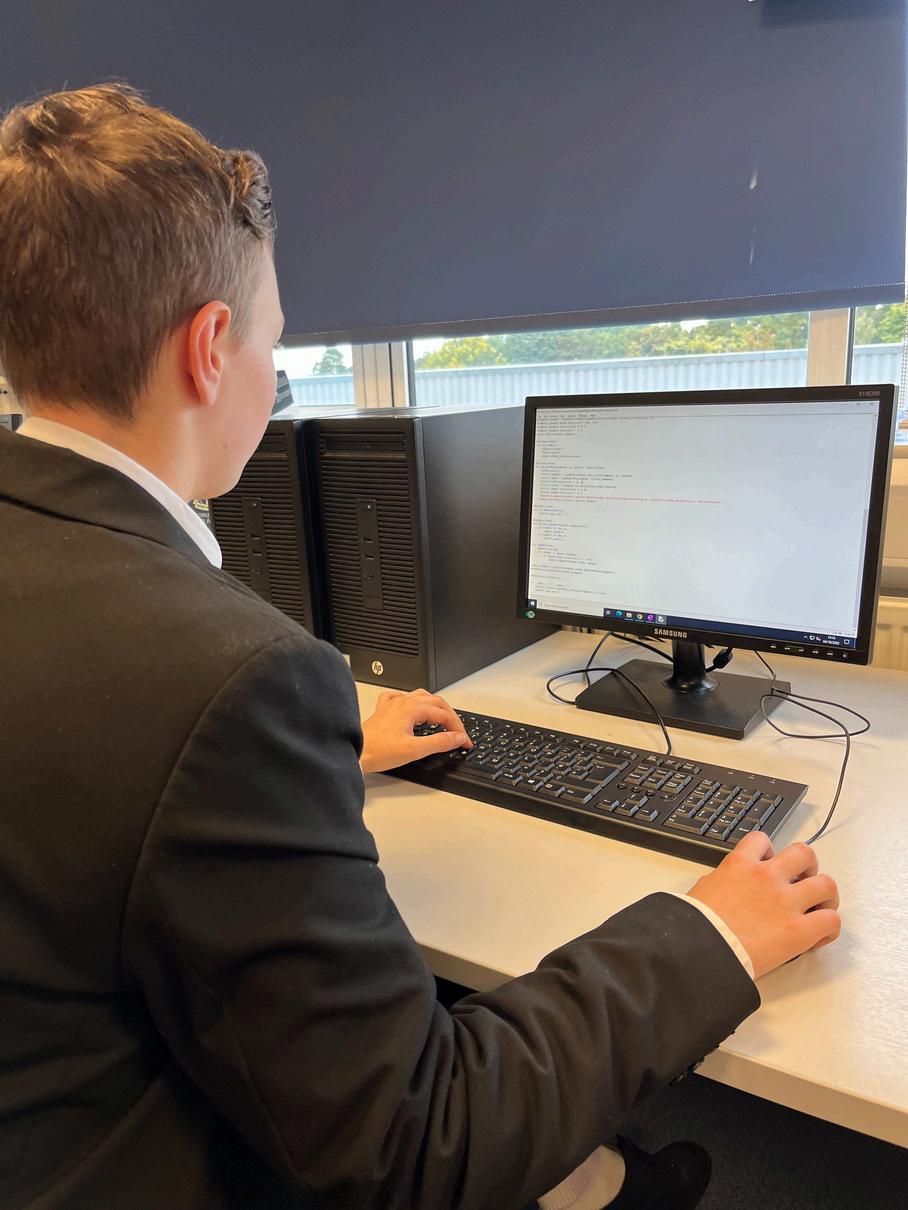
Computer Science offers a dynamic course with experimentation and practical aspects that will challenge and engage you. You will:
• Develop capacity to think creatively, innovatively, analytically, logically and critically.
• Become confident and fluent in all aspects of Computer Science, from hardware to software.
• Learn to problem solve through careful abstraction, decomposition, construction and rigorous implementation. In software terms, you will learn to develop code in more advanced programming languages as well as work on different computer platforms and operating systems.
Classroom learning is transferred into creating real-world systems through your independent programming project.
A Level Computer Science is an excellent preparation for future studies or a wide range of careers such as: Software Development, Network Management, ICT Support, Web Design, Database Administration, Games Development, Prosthetics, Cybersecurity Analyst, IT Consultant, Technical Writer and UI/UX Developer.
Design Technology in Fashion and Textiles is an exciting course that explores aspects of the fashion industry. Lessons are interactive and vibrant, providing a stimulating experience to learn and develop skills in areas of design and making. Students especially enjoy completing the coursework portfolios and creating garments.
Assessment
Non-Examined Assessment: 50% of final mark. This will be a ‘Design and Make’ project starting in Year 12 and continuing into the second year of the course. You will be able to self-originate a design brief to research and explore. A garment will be manufactured and an accompanying portfolio will document the processes followed.
Examination:
Two papers totalling 50% of the final mark.
There are two papers for this course:
•Paper 1: Technical principles. Written examination, 2.5 hours, 30% of the A Level.
•Paper 2: Designing and making principles. Written examination, 1.5 hours, 20% of A level.
Enrichm Competiti Facilitate
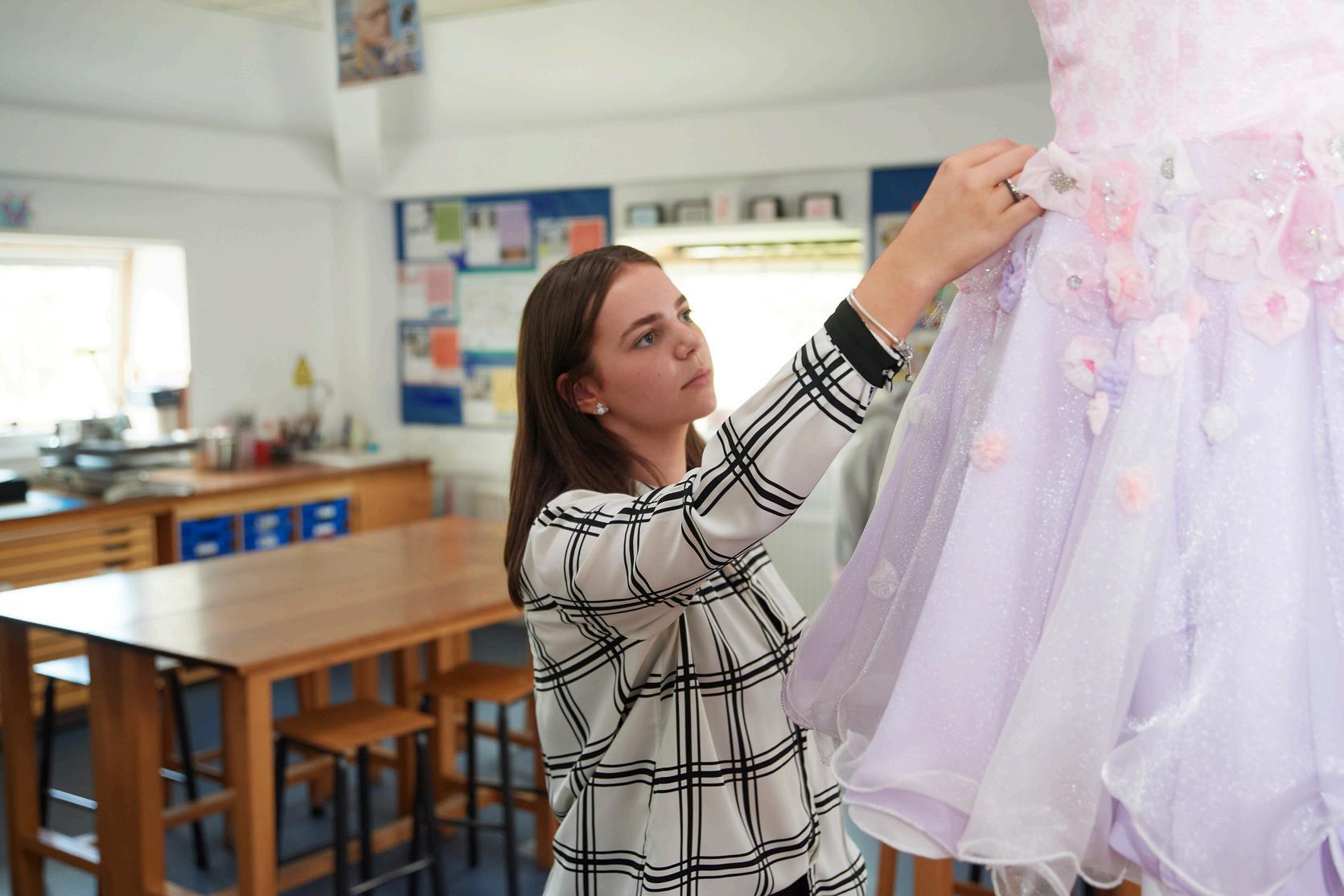

• The Fashion and Textiles industry is the UK’s sixth largest manufacturing sector; the market value reached over £60 billion last year alone even with the pandemic and consumers switching to digital retail.
• It is estimated that this sector employs over 555,000 people, therefore supporting this sector requires a steady supply of creative individuals who can design and develop new fashion and interior products.

• UK consumers spend almost £45bn on clothing and textiles, which has been steadily rising over the last decade.
• New developments in technology, processes and awareness of the growing social, environmental and ethical impacts of fashion are ever changing.
The scope of a future in Fashion and Textiles ranges from Fashion Forecasting, Buyers, Designing, Merchandising and Fabric Technologists through to Pattern Cutting, Marketing and Retail.
Many of our students go on to study a design related course at degree level, while others choose a foundation course before specialising in a particular area of design.
Previous students have successfully completed courses in Fashion Design, Fashion Promotion, Marketing and Textiles Technology.
The course follows a similar structure to GCSE Drama, but requires a higher level of depth, understanding and performance skill. Students study two plays from different historical periods and must be able to communicate their vision of how to realise these texts from the point of view of a performer, director and designer. They will also develop an in-depth understanding of the methodologies of a theatre practitioner and know how to apply them to one of these texts.
Assessment
Component 1: Devising (40% of A Level)
Creating an original group piece 10% performance and 30% accompanying portfolio Component 2: Texts in Performance (20% of A Level)
Scripted group performance and a monologue or duologue performed to an audience and examiner.
Component 3: Texts in Context (40% of A Level)
2 hour and 30 minute written examination taken at the end of the two year course.
Enrichment Oppo
Drama Club
Dance Club
ISA Competition
School Productio
Performing Arts
LAMDA
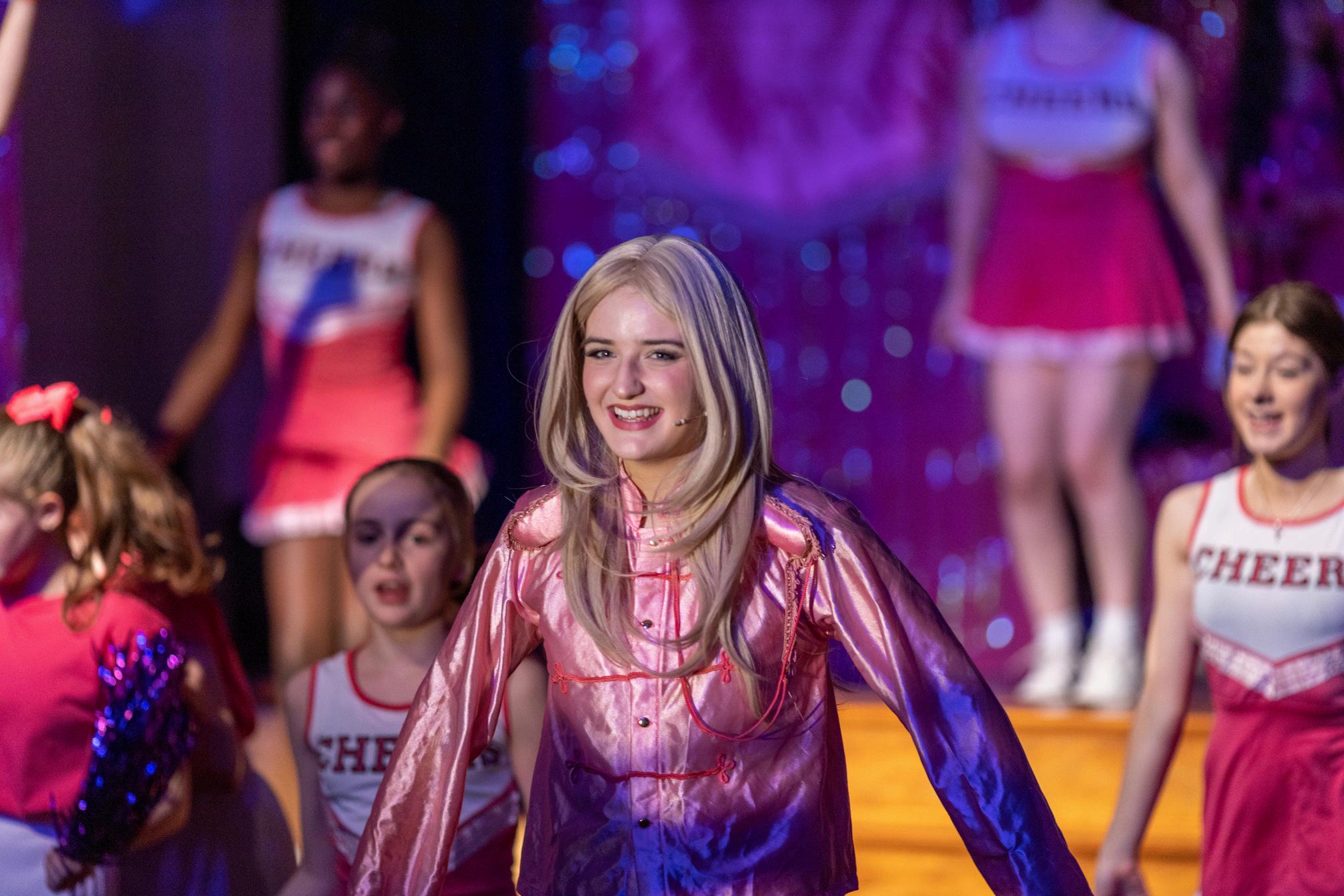

You will have the opportunity to study both influential and modern plays, collaborate on creating your own innovative and creative work, refine performance skills and study important theatre practitioners and the societies they influence.
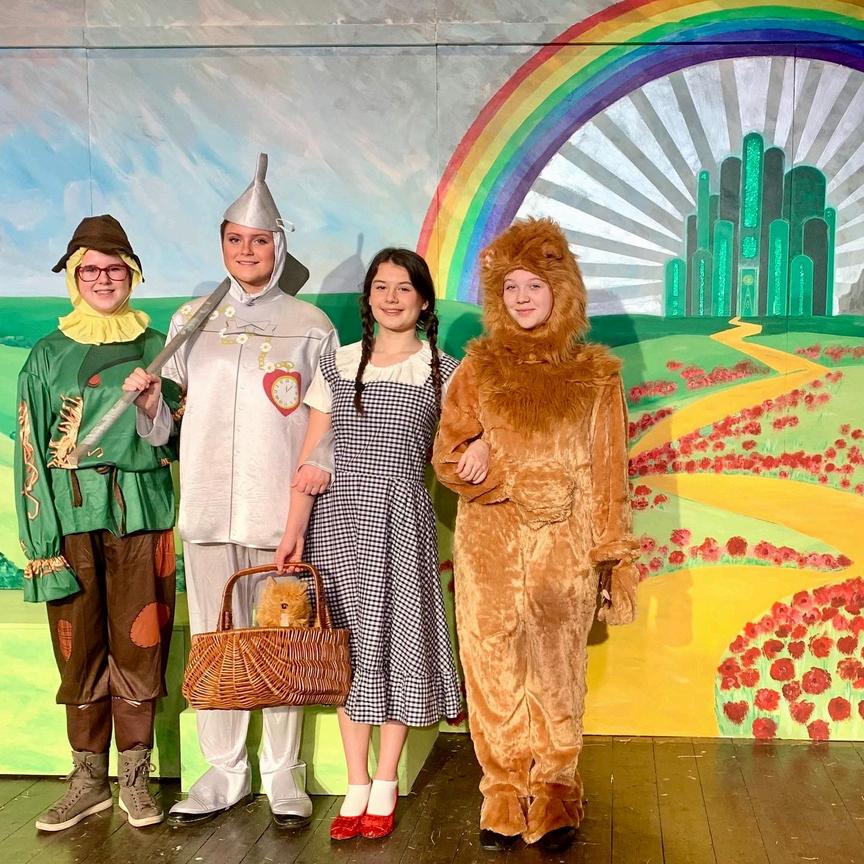
You will also be able to develop transferable skills including team working, creativity, communication and project management, which will prepare you for performing in interviews, delivering presentations, and effectively collaborating in future work environments.
A Level Drama and Theatre Studies can prepare you for a variety of Higher Education courses and careers including: Actor, Director, Stage Manager, Arts Administrator, Drama Teacher, Television Producer, Radio Presenter, Youth and Community Worker, Personnel Manager, Social Worker, Lawyer and Journalist.
The skills you will gain in studying Drama and Theatre Studies will help you to present yourself well in an interview and build team working and problem solving skills, preparing for any potential career choice.
The subject is split into two main areas; Microeconomics and Macroeconomics. Macroeconomics looks at the bigger issues affecting the economy as a whole such as interest rates, unemployment, inflation, exchange rates and economic growth. Microeconomics looks at the smaller scale issues; the pricing of individual products and commodities like oil or gold; the differing salaries paid to people; and the reasons for price and wage differentials.
A Level assessment consists of three 2 hour written exams taken at the end of the two year course. Each exam will be worth a third of the A Level. All three papers will draw on material from the whole course, and will feature a range of question styles including multiple choice questions, short answer questions, essay questions, data response questions and case studies.
Each AESG Year 13 group hosts the exciting speaker, EconPlusDal for over one hundred local Economics students. The event is focused on examination technique and getting to grips with more challenging topics. It is a fantastic, high energy event for students and staff and one we are proud to host. We highly recommend you take time to research him and his excellent YouTube channel.
Young Enterprise Company Programme provides a real-life learning opportunity that introduces young people to the realities of the world of work. Teams make all the decisions about their business, from deciding on the company name and managing company finances to selling to the public through pop up shops and the YE unique e-commerce platform Trading Station As an Economic pricing, the market you ’ re se ness ’ s finances.
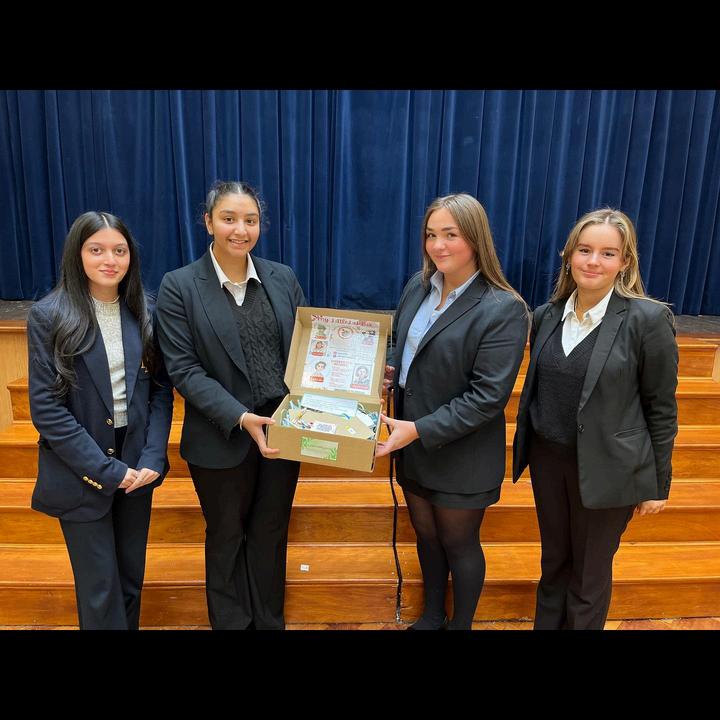

With the UK economy currently in turmoil, now more than ever, an understanding of how the economy functions is so valuable to students. Economics, at its very heart, is the study of people.
The subject explores human behaviour and decision making, and how individuals react when faced with difficulties. Economics covers areas within Politics, psychology, history and sociology.
Interested in: Why interest rates are the highest in 20 years?

What causes individuals to spend their money?
How spending decisions made?
Why exchange rates fluctuate and what is the impact?
Why the government intervene in a market?
Whether it always work out well?
The causes of poverty?
If you answered yes to any of the above, then Business may be the course for you!
The majority of Economics undergraduates have studied the subject at A Level alongside Mathematics. subject helps you develop skills that are invaluable for a range of Higher Education courses and work places.
Economics leads students into careers in Economics and Finance and wider including: Accountant, Stock Broker, Investment Analyst, Politician, Aid Worker. As a Social Science, Economics can be combined with most other subjects,e.g. Geography, History, English, Mathematics and Science to give a huge range of study opportunities.
Overview of the course
Component 1: Exploring Language
You will learn how to analyse texts linguistically and create original writing for real world purposes.
Component 2: Dimensions of Linguistic Variation
You will study how children acquire language, language and the media and how language changes over time.
You will complete an independent project to investigate a linguistic feature of your choice. You may choose to explore language and gender. Language and power, language and technology, or any element of language that interests you. The project comprises a report of 2,500 words and an academic poster.
Assessment
There are 3 components to the course:
• 2 examination papers (Paper 1: Exploring Language and Paper 2: Dimensions of Linguistic Variation)
• 1 independent language research project (Non-Examined Assessment/Coursework)
Enrichment Opportunities
Working with Prep students on Child
Language Acquisition
Youth Speaks
Debating


• Where do words come from?
• Why do they mean what they do?
• If you are interested in discovering the answer to these questions, then A Level English Language is for you!
If you want to know how language is used to control and manipulate us by both the media and people in power, then A Level English Language will certainly intrigue you.

There are so many opportunities open to those who study English Language. Many students go on to study Linguistics, Journalism or Media-related subjects at university.
English Language A Level will also support students considering a degree in any Arts or Humanities subject.
Possible career opportunities include: Advertising, PR, Marketing, Print or Broadcast Journalism, Publishing, Teaching, Speech Therapy and Graduate Training Programmes.
Overview of the course
Paper 1: Drama
You will study one Shakespeare and one other drama text with a focus on either tragedy or comedy.
Paper 2: Prose
You will study two prose texts linked thematically.
Paper 3: Poetry
You will study post-2,000 poetry and an anthology reflecting a literary movement.
Paper 4 (Non-Examined Assessment): Personal Investigation
You will explore a choice of topic, genre or book in greater depth.
You will conduct an independent investigation of literature which provides you with the opportunity to pursue an area of study which is of particular interest to you.
Assessment
There are 4 components to the course:
3 set text, open book examinations (Papers 1, 2 & 3)
1 personal investigation (Non-Examined Assessment/Coursework)
Enrichment Opportunities
Theatre productions
Reading forums
Creative writing
Essay writing competitions
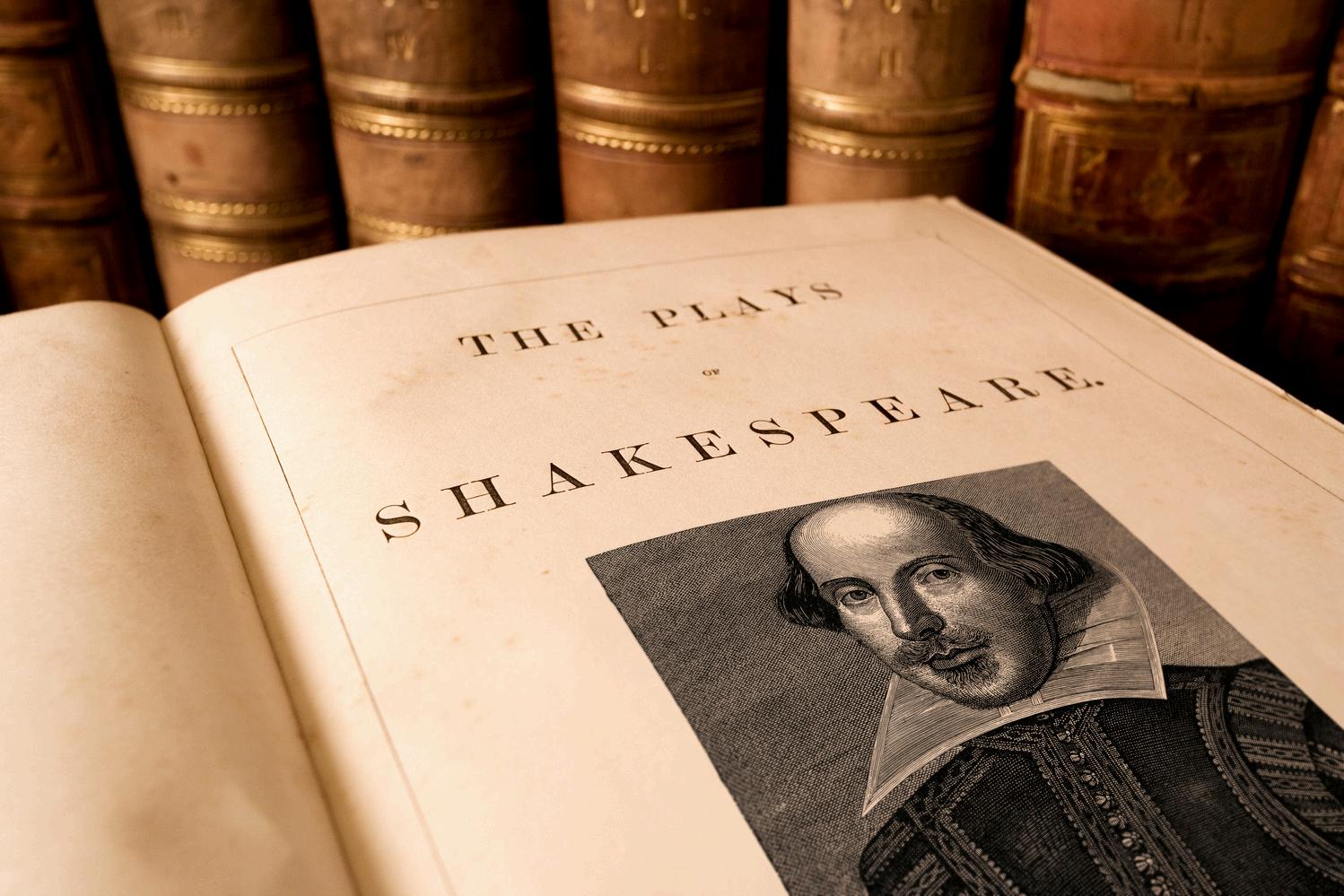
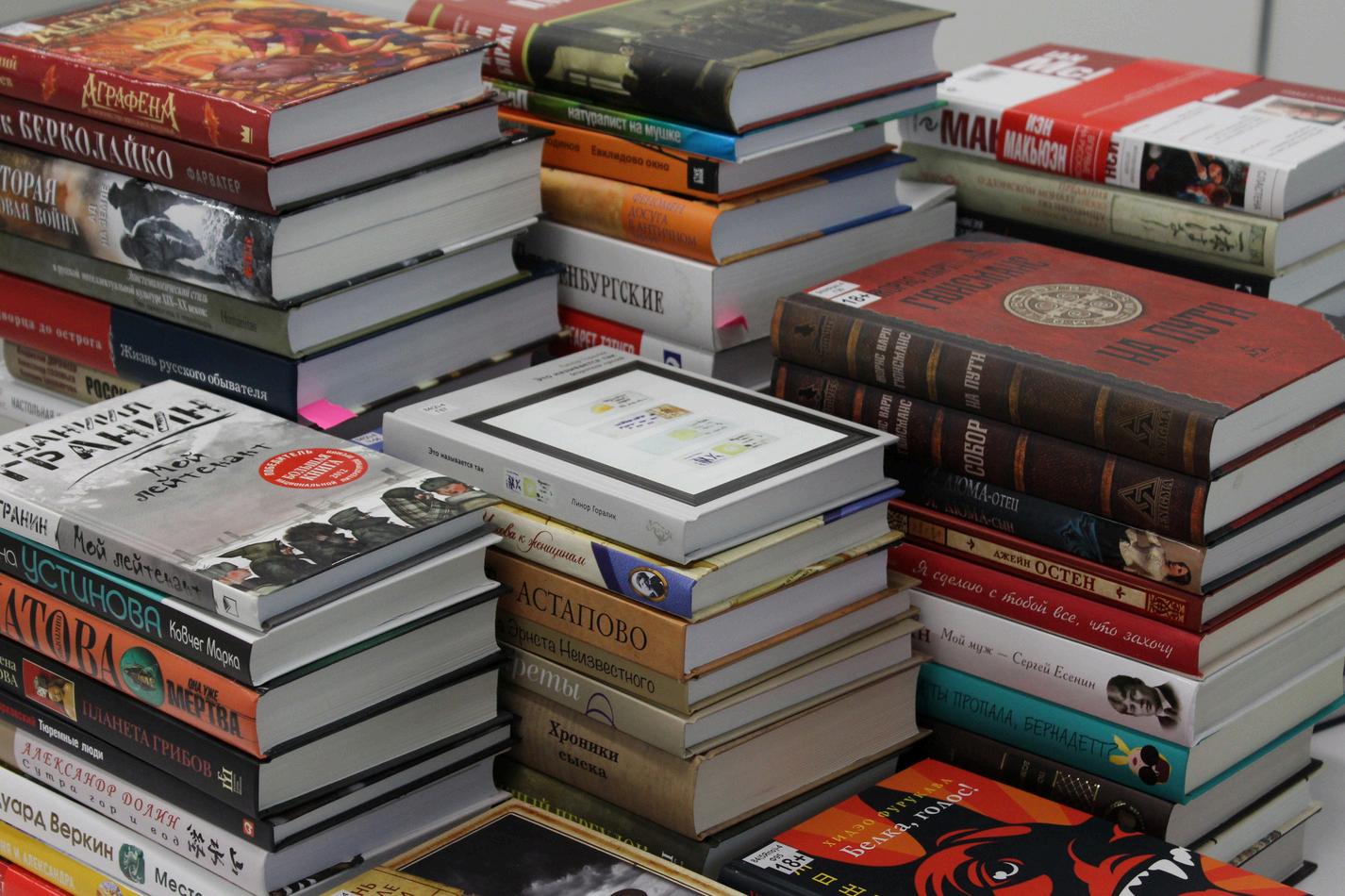
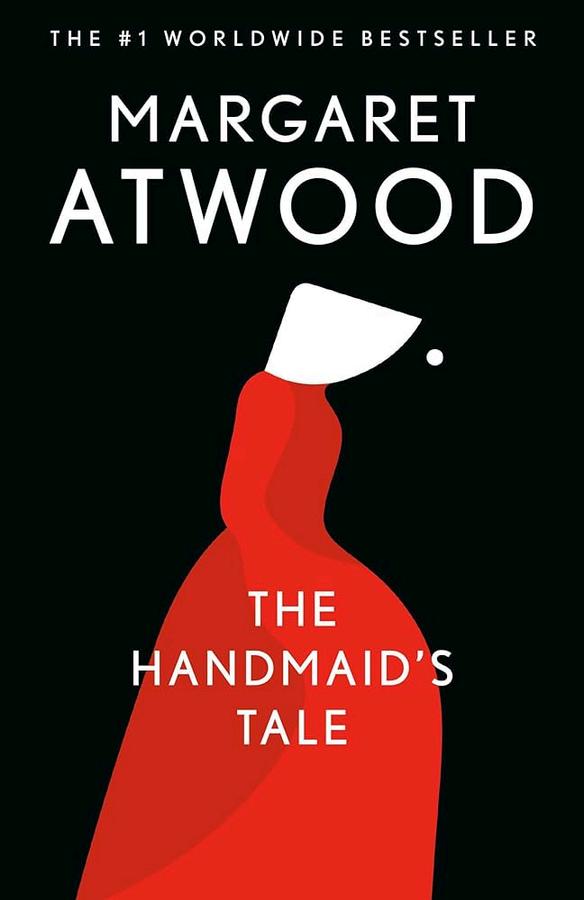
• ‘Literature is able to enlarge and refine our understanding of life.’ (R Davies)
• If you enjoy books and are keen to explore different interpretations, appreciating that there can be no ‘right’ answer, then English Literature is the subject for you!
• If you enjoy debate and discussion and are prepared to offer your own ideas, then English Literature is for you!
English Literature is recognised as a rigorous and traditional academic subject which is highly regarded by universities and employers.
The study of English Literature provides excellent experience for any career which requires organisation of ideas, recognition of people’s needs and the ability to communicate skilfully.
Writing, Law, Journalism, Teaching and Research are among some of the possible career options which lie ahead.
An understanding of Food Science and Nutrition is relevant to many industries and job roles. This knowledge is used by nutritionists in hospitals, sports coaches and fitness instructors.
Hotels and restaurants, food manufacturers and government agencies also use this understanding to develop menus, food products and policies that that support healthy eating initiatives. Many employment opportunities within the field of Food Science and Nutrition are available to graduates.
UNIT 1
The assessment is made up of 50% external written examination on Nutrition and 50% internal controlled assessment on planning, preparing and presenting a meal for a specific chosen group.
UNIT 2
This assessment is mandatory and is an externally set task completed over 8 hours in a 3-week period at school.
UNIT 3 or UNIT 4
Internally assessed investigation or research project.
A chance to attend trips and enter competitions. Previous enrichment opportunities include: ‘Future Chef Competition’ Trip to London for a Food Sustainability Exhibition


• Do you enjoy using the theoretical knowledge you have gained in a practical application?
• Would you like to know about the nutritional needs of specific groups of people?
• Would you like to be able to plan and prepare meals to suits these needs?
• Would you like to understand how to make food safe to eat?
• Would you like to be able to investigate current issues in Food science and Nutrition? Solve food production problems?
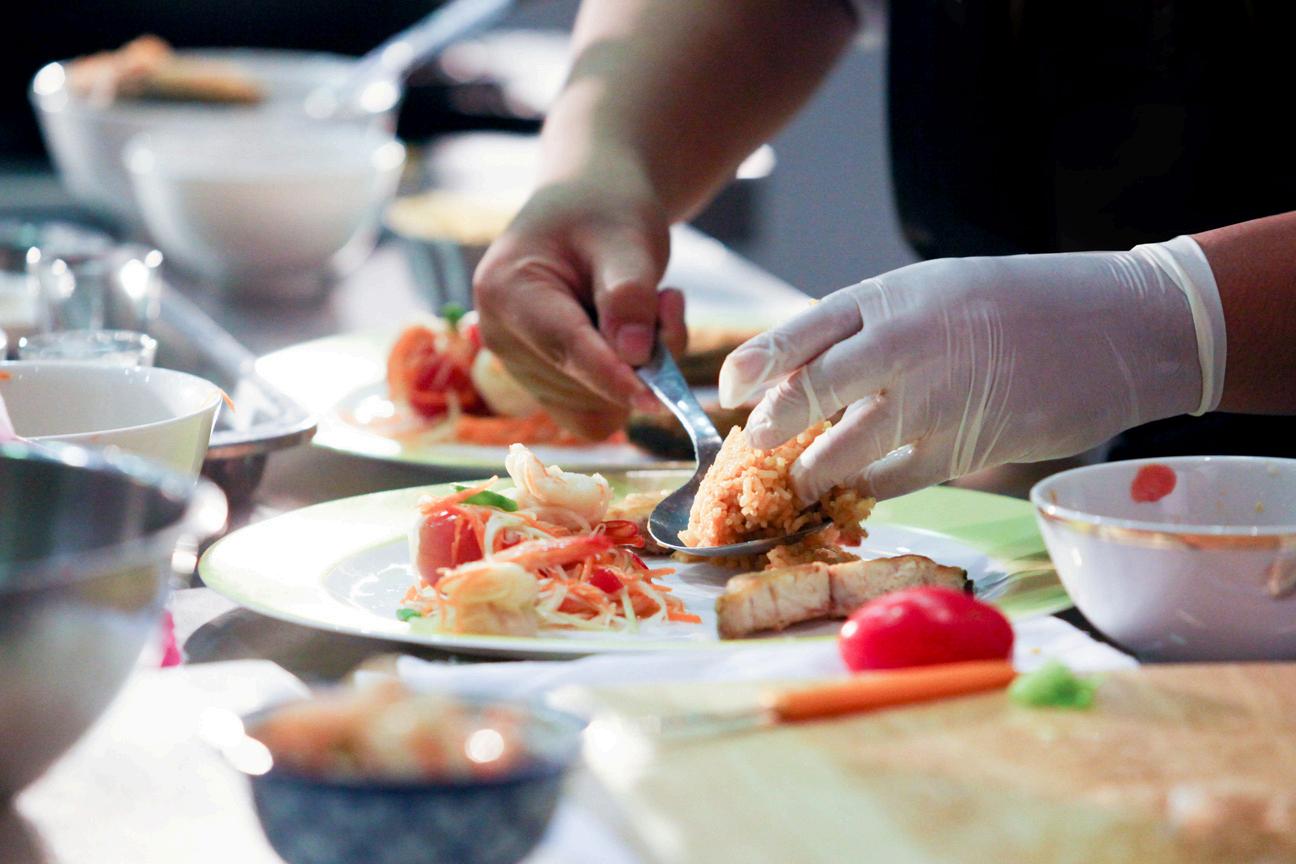
If the answer to any of the above is ‘ yes ’ , then Food Science and Nutrition is the subject for you!
Where will this lead?
Together with relevant Level 3 qualifications such as A Levels in Biology, Chemistry and Maths, learners will gain the required knowledge to progress to higher education degree courses, such as:
• BSc Food and Nutrition
• BSc Human Nutrition
• BSc (Hons) Public Health Nutrition
• BSc (Hons) Food Science and Technology
A Level French builds upon your existing knowledge gained at GCSE, giving you a sound understanding of how to use your language in a variety of contexts and situations. You not only study the language but also learn more about the French speaking world via the language.
There are 3 papers.
Paper 1 is a listening, reading and writing paper (2 hours 30 minutes), which accounts for 40% of the A Level grade.
Paper 2 assesses the study of one film and one book (2 hours), which accounts for 30% of the A Level grade.
Paper 3 is an oral examination (21-23 minutes) and includes a discussion on one of the sub themes, a presentation, and a discussion on the individual research project. The oral accounts for 30% of the A Level grade.
Enrichment opportunities include visits to the annual French Film Festival at HOME Manchester, study days at Manchester University and the Educational visit to Paris.
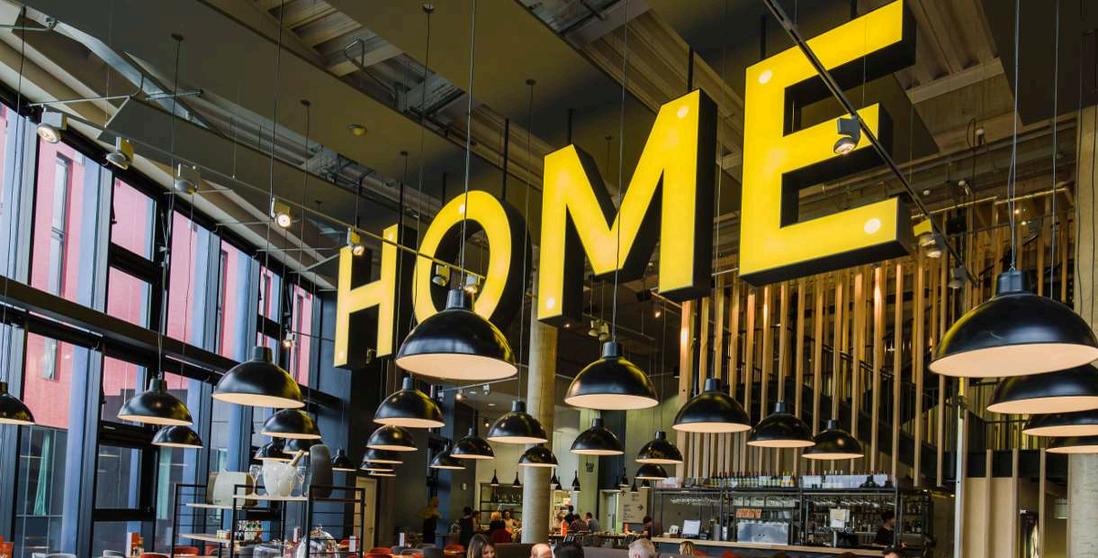

French is a Global Language - more than 300 million people speak French. French is the second most widely learned foreign language after English, and the fifth most widely spoken language in the world.
A knowledge of French offers access to great works of literature in the original French, as well as films and songs. French is the language of Victor Hugo, Molière, Léopold Sendar Senghor, Edith Piaf, Jean-Paul Sartre, Alain Delon and Zinedine Zidane!

Having an A Level in French will open so many doors for you. You may choose to read French at university and even combine it with another language. French can be combined with Business Studies, Drama, Linguistics, Politics, Philosophy, Law, even Biochemistry – the list is endless!
Being able to speak French makes you more employable and develops transferable skills such as communication, analysis, evaluation, resilience and confidence.
The AQA course we offer is hands on, it is relevant, and it is fun. The course will give you a chance to get to grips with some of the big questions, that affect our world and to understand the social, economic and physical forces and processes, that change and shape our world.
Pupils will need to undertake four days of Fieldwork, and this will include aspects of both physical and human Geography. Fieldwork will be completed in number of ways: locally or further afield, on full days or on part days. We will put on a number of voluntary one-day excursions tailored to match the content of the individual units and a compulsory two-night residential course staying at Cranedale, North Yorkshire for the Lower Sixth (approximate cost is £230 per pupil).
A Level Geography is split into three components for the AQA exam board: Component 1
Physical Geography: This is assessed by a 2.5-hour exam that accounts for 40% of the A Level.
Component 2
Human Geography: This is assessed by a 2.5-hour exam that accounts for 40% of the A Level.
Component 3
Geographical Investigation: Students complete an individual investigation which must include data collected in the field. This is a 3000-4000-word investigation worth 20% of the A Level. This piece of work is internally assessed and moderated by AQA.
The department has close links with a range of universities in the region. Students are encouraged to join the Manchester branch of the Geographical Association, enabling access to additional lectures, quiz nights and debate forums.


Geography provides an opportunity to understand what is going on in the world. We are a high achieving department with excellent A Level results year on year.
We teach an up-to-date, relevant and interesting curriculum. We have dedicated teaching staff providing excellent support to all students throughout the course.
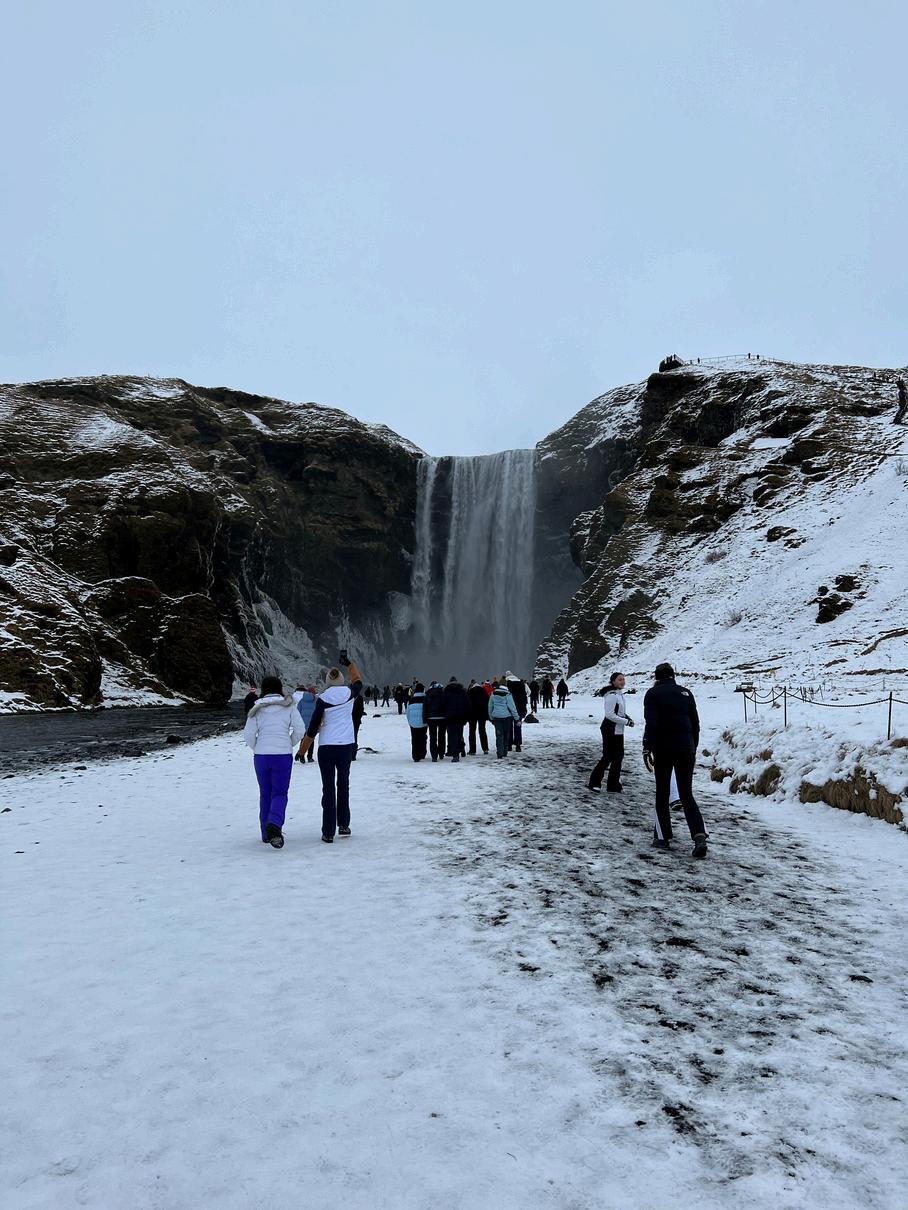
The skills you will develop are highly transferable and are skills that Universities and employers are looking for.
If you are interested in a career that involves travel, you will not be disappointed. Geographers really can work anywhere in the world!
Geographers enter a very wide range of career areas and, put simply, there is no such thing as a Geography job, just jobs that Geographers do:
Architect, Town planner, Housing Developer, Natural Disaster Manager, Weather Forecaster, Travel Agent, Accountant, Market Researcher, Lawyer, Civil Servant, Armed Forces, Emergency Services, Crime Statistical Analysis, Pilot, Travel Writer, Landscape Gardener, Journalist and Teacher.
A Level Government & Politics is a fascinating subject.
1. The Government & Politics of the UK
2. The Government & Politics of the USA & Comparative Politics
3. Political Ideas: Feminism, Socialism, Liberalism and Conservatism
Assessment
Students taking A Level Government and Politics will sit three examinations at the end of Upper Sixth. Each of the three units have equal weighing (33%) and include a mixture of short and longer essay style questions. All three papers are two hours long.
The Bar Mock Trial Competition
Amnesty International Mock elections
Trips to London and and possibly further afield
Guest Speakers
Views and News Club
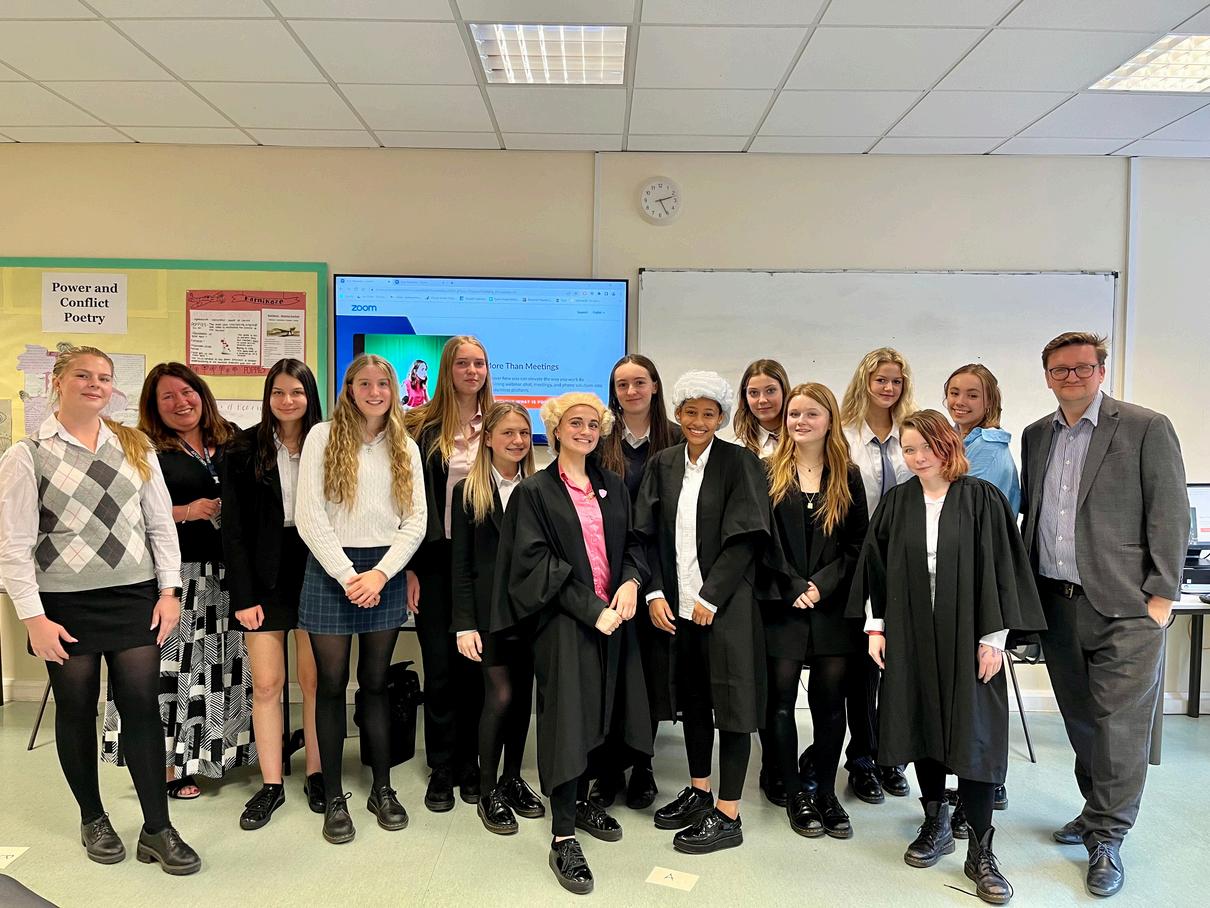

Our course never sleeps. One moment Boris Johnson is Prime Minister, the next it is Liz Truss and then further changes! A cabinet reshuffle or a breaking news story can change a whole week’s lesson or the way we view an issue.
You should choose Government & Politics if you enjoy debates, discussing the world around us and want to explore the big issues in society. Questions such as: Is extinction Rebellion pushing people away from tackling the issues of climate change? Why does America have a gun problem? Is Britain really a democracy? Why do people vote the way they do?

An A Level in Government & Politics can naturally lead to further studies at university, including degrees in Politics, History, Economics, Philosophy and Law. Those who have studied Politics often progress onto careers in Law, Advertising, the Civil Service, Police, Armed Forces, Education, Health, Law and the Media.
Enjoy discussion and debate? Take History! History is all about people - their lives, their hopes and their achievements. It is full of drama (tragedy, murder - even some romance) and although the subject is called 'His Story', it is all about women too! We can promise you an interesting and lively course. If you enjoy studying the history of societies, politics and economics then join us!
Students taking A Level History will sit two examinations at the end of Upper Sixth. Each examination will last 2 hours and 30 minutes and will be worth 40% of the A Level qualification (80% in total).
In addition, all students will submit one piece of coursework (the 'Historical Investigation') which is based on the social, political and economic origins of the English Civil War. This is between 3500 and 4500 words and is worth 20% of the A Level qualification.
The Historical Investigation gives you a real taste of what it is like to be at university although staff will provide guidance and expertise throughout the process. You will enjoy completing this work, as you can choose to research different aspects of 16th and 17th Century British history.
Enrichment Opportunities
Trip to the English Civil War Museum
Trip to Bolsover Castle
House of Commons trip - joint with Politics
Visit to the Labour Party Archives at the People's History Museum in Manchester
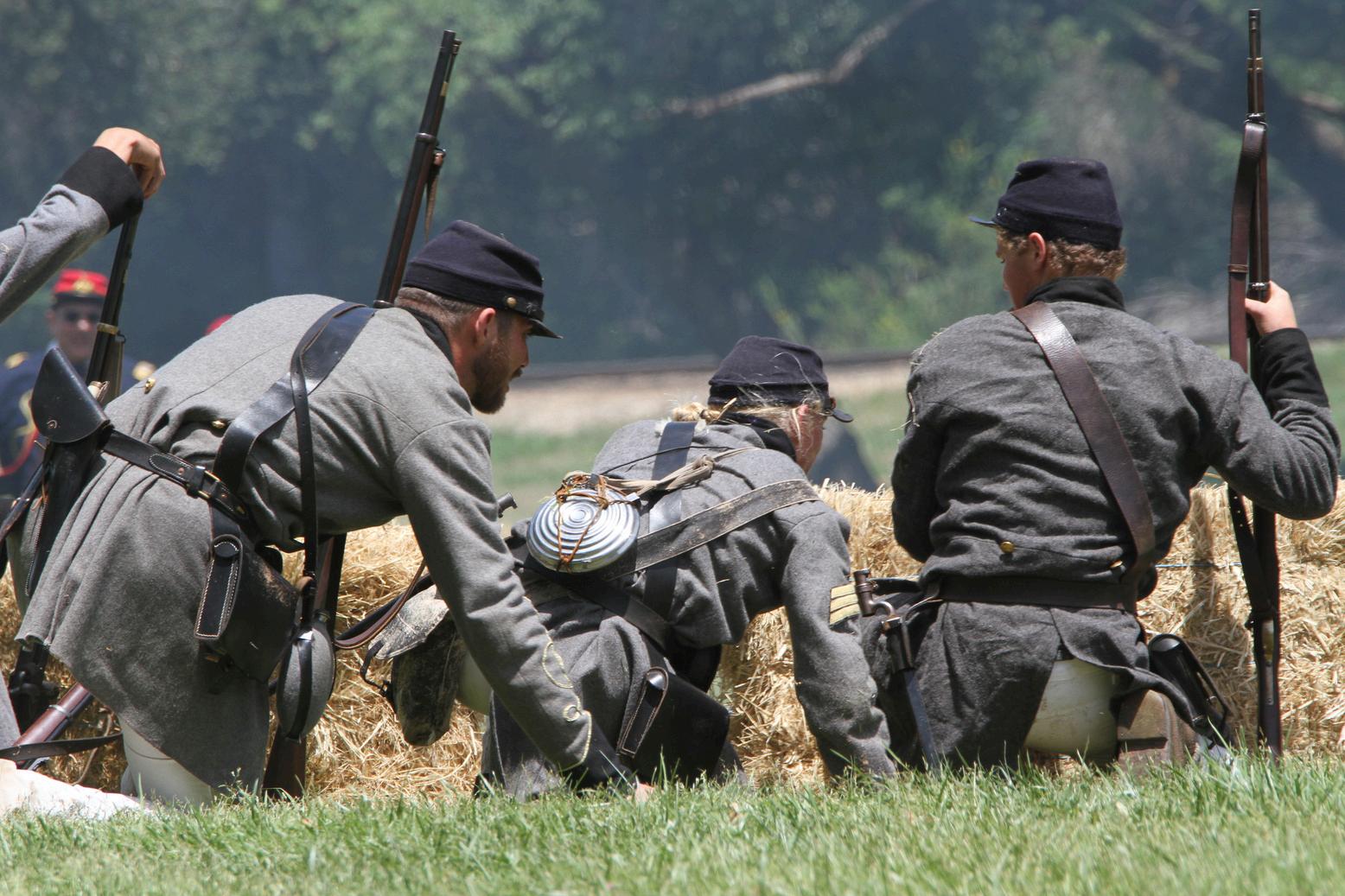
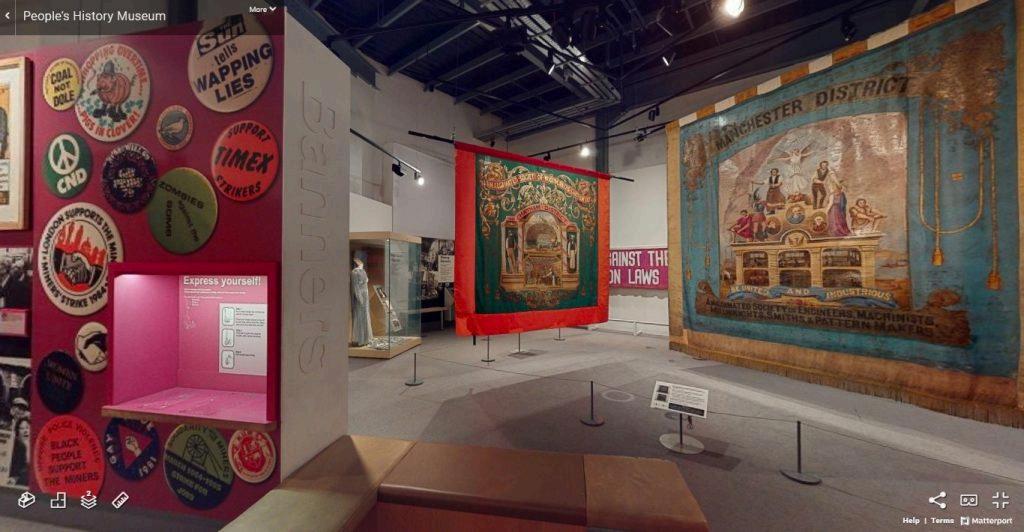
History is a dynamic course of study that will help you become an inventive thinker, researcher, writer and communicator.
History encourages teamwork and will train you to approach issues from diverse viewpoints on the road to making informed decisions. You will be forced to think ‘outside of the box’ and contend with and critique opinions and view points counter to your own.
History research requires the use of primary sources, an array of technology and webbased resources, building a skill set that makes history graduates’ valuable assets to a variety of organisations.
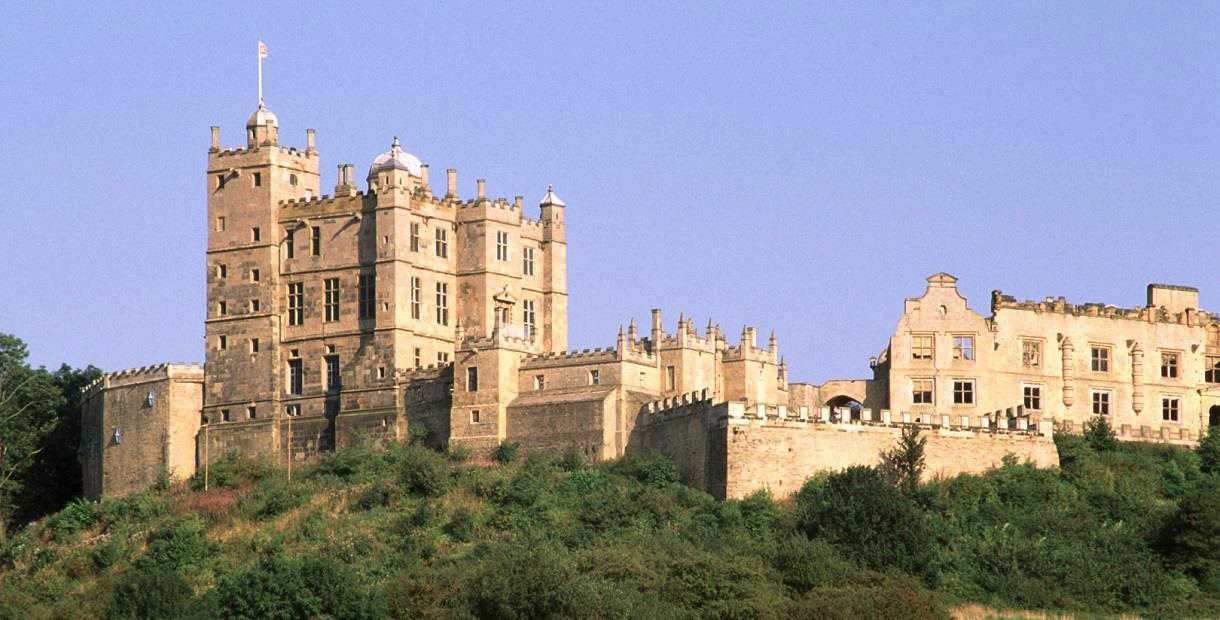
Your History degree will equip you with skills such as; communication, teamwork, making decisions, planning and prioritising and more, to prepare you for careers in law firms, management consultancies, banks, accountancy, publishing companies, retailers, schools, international development organisations, universities, archive and records offices, charities, journalism and television and radio broadcasting.
Overview of the course
Information Technology (IT) is found in all walks of life. Teaching, marketing, accounting and banking are just a few of the professions that are reliant on IT. In the course you will study four units. These units are a mix of theory and practical content, with two units being completed in each year of the course.
Assessment
4 units, each weighing different amounts. Units include:
Information Technology Systems (Written examination – 2 hours)
Creating Systems to Manage Information (Set tasks – 5 hours over 2 days)
Using Social Media in Business (Internally assessed)
Data Modelling (Internally assessed)
Residential Trips
This year we have a two-night residential visit to Bletchley Park and Cambridge to learn more about STEM careers for women and computing history. Possible destinations for the next two years include: London, Berlin or Disneyland Paris.
Over the coming years the department will be looking to visit local businesses to gain an insight into the careers that Information Technology could lead to for you.
In addition to your coursework, you will also gain the opportunity to learn about marketing using Social Media with our own marketing department.


• The skills you will develop during this course are practical work and life skills which are viewed favourably by employers and education establishments. Whether you are going on to higher education or taking up a career direct from college, a qualification in IT will help your future prospects.

• IT skills are increasingly a necessity for many courses and careers. This qualification gives you a variety of routes for your future including university, apprenticeships or employment.
• The BTEC L3 extended certificate is equivalent to an A Level and provides an excellent qualification in itself. Business is the perfect companion to this course.
Potential careers available from studying this qualification: Programmer, Software Developer, Web Designer, Web Developer, Database Administrator, Database Developer, Database designer, Project Manager, Systems Analyst, IT Consultancy, Desktop Support Engineer, E-Learning Coordinator, Graphic Designer, Internet Developer, IT Trainer. Not only are there many careers directly linked to a qualification in IT and it is rare to find a career where competence in IT would not be an advantage.
The course covers a mixture of Pure Mathematics and Mathematical applications. The Pure Maths develops algebraic, coordinates geometry and trigonometrical skills and introduces new aspects of Maths such as calculus. The applied Mathematics is split between two disciplines. Mechanics (closely allied to Physics and Engineering) uses Maths to describe the effects of forces and to model how things move. Statistics (often used in Business, Economics and Psychology) looks at the processing and uses of data and how probabilities can be used to make inferences with certain degree of confidence.
The course is assessed by final assessment only. This takes the form of three two-hour papers, which carry equal weight. There are two Pure Mathematics papers, and one which is split equally between Mechanics and Statistics. Each paper is marked out of 100; the final grade is awarded from the overall score out of 300.
Various Maths challenges (individual and team) take place throughout each year. Where available, there may be opportunities for seminars and courses at Manchester University.
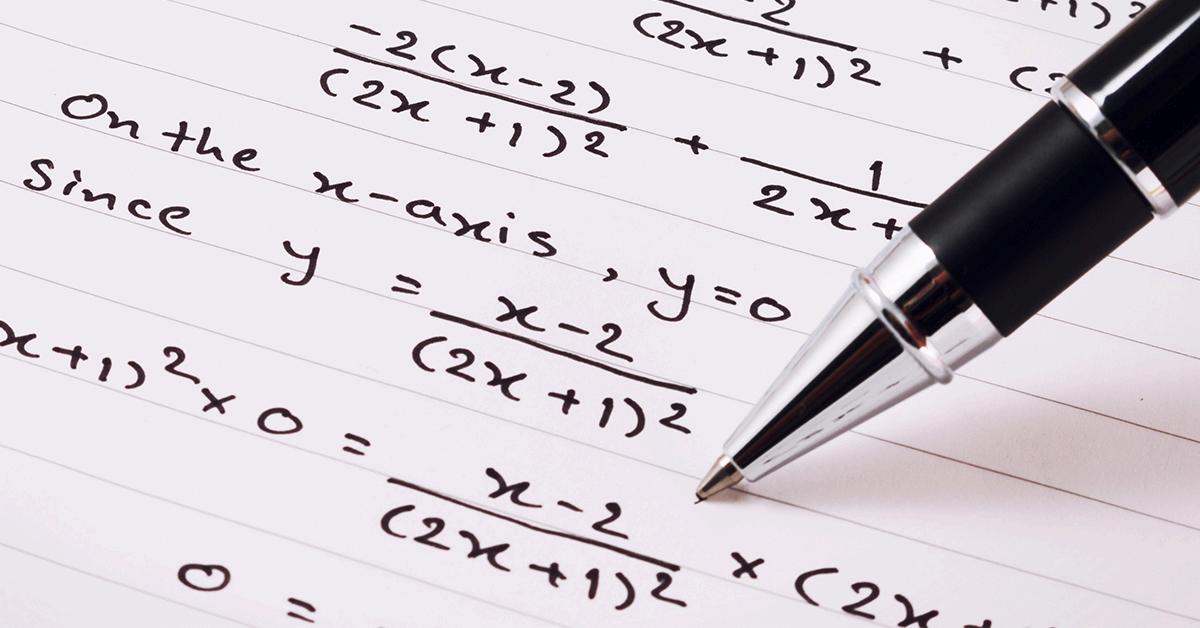

• Are you good at Mathematics? Do you enjoy Mathematics? If you answered “ yes ” to both of these questions, that is already a good reason to choose to study Mathematics at A Level! But there are more reasons…
• Mathematics helps with other subjects. You may realise that there is a lot of Mathematics in, for example, Physics, but Mathematics is used in many other subjects including Psychology, Business Studies, Economics, Geography and Biology. Whilst not essential as a “companion” subject, the skills developed and the methods taught are extremely useful.

A Level Mathematics can lead to courses and employment in many fields, including Physics, Engineering, Accountancy, Medicine, Economics and Computing.
The generic skills and processes involved and the analytical thinking and problem-solving inherent in the study course are greatly valued in many areas and can give applicants a real advantage during UCAS or job applications.
This course is an additional course to A-Level Mathematics. It develops concepts and techniques such as algebra and calculus to a higher level than the A-Level Mathematics course and also introduces higher level ideas that will be useful for many University courses. Some topics (the two compulsory Core Mathematics modules) focus on this; the remaining two modules are chosen each year to complement areas of interest of those taking the subject.
Whilst some students choose this as one of their three A-Level choices, Further Mathematics is one of the few subjects that can easily be taken as a fourth subject.
The course is assessed by final assessment only. This takes the form of four 90-minute papers, which carry equal weight. Two of these are compulsory and assess Core (“Pure”) Mathematics.
The other two are chosen from a range of options which include Further Pure Mathematics, Further Mechanics, Further Statistics and Decision Mathematics. Each paper is marked out of 75; the final grade is awarded from the overall score out of 300. Please note that this course cannot be taken without also studying A-Level Mathematics.
Various Mathematics challenges (individual and team) take place throughout each year. Where available, there may be opportunities for seminars and courses at Manchester University.


• This course is for those who really want to know how and why Mathematics works, and who wish to move beyond the confines and limitations of the more standard branches of mathematics. It involves greater rigour and begins to explore the interconnectivity of different branches of mathematics.

• A real bonus of this course is the element of choice, which allows you to pursue an aspect of Mathematics suited to your future career or study course. Decision Mathematics, for example, works easily alongside computing and follows an algorithmic approach.
A-Level Further Mathematics is useful in many fields of study and careers. The element of choice in the course allows you to choose a study programme including Further Pure Mathematics (useful in Engineering and Science), Mechanics (also useful in Engineering and Physics), Statistics (useful in Economics) and Decision Mathematics (useful in computing and logistics). The high-level reasoning and ability to grasp new concepts are widely valued by Universities and employers alike as an indicator of a disciplined and competent candidate.
Studying Photography provides the opportunity to be innovative and creative. You will have the opportunity to learn how to use a digital camera and professional lighting in our dedicated studio and have access to industry standard software such as Photoshop to help you create a portfolio of stunning images. You will deepen your understanding of the visual world through the research of a wide range of images, artists, and photographers. You will focus on digital photography and manipulation rather than traditional darkroom practice. This is a practical course supported by written annotation. It is highly recommended that students have their own DSLR camera. If you would like advice as to which model will be suitable, please contact the Art Department.
This is a highly practical subject. Work for each component is holistically assessed at the end of the course using the four assessment objectives set by the exam board.
• AO1: Develop ideas through sustained and focused investigations informed by contextual and other sources, demonstrating analytical and critical understanding.
• AO2: Explore and select appropriate resources, media, materials, techniques and processes, reviewing and refining ideas as work develops.
• AO3: Record ideas, observations and insights relevant to intentions, reflecting critically on work and progress.
• AO4: Present a personal and meaningful response that realises intentions and, where appropriate, makes connections between visual and other elements.
Students are encouraged to take part in regional and national competitions such as ARTiculation and the ISA Digital Arts Competition.
We encourage students to visit galleries and provide opportunities for them to engage with practising photographers.
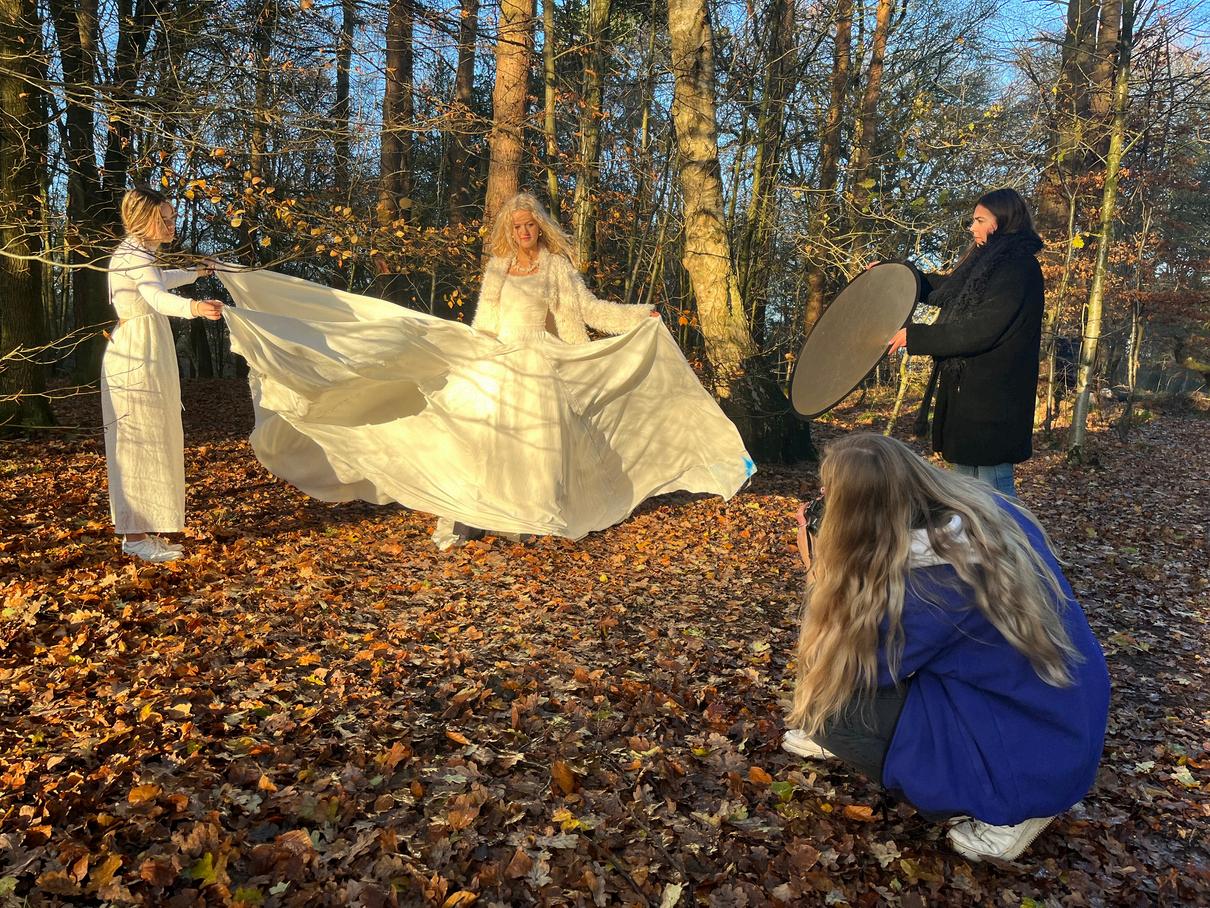
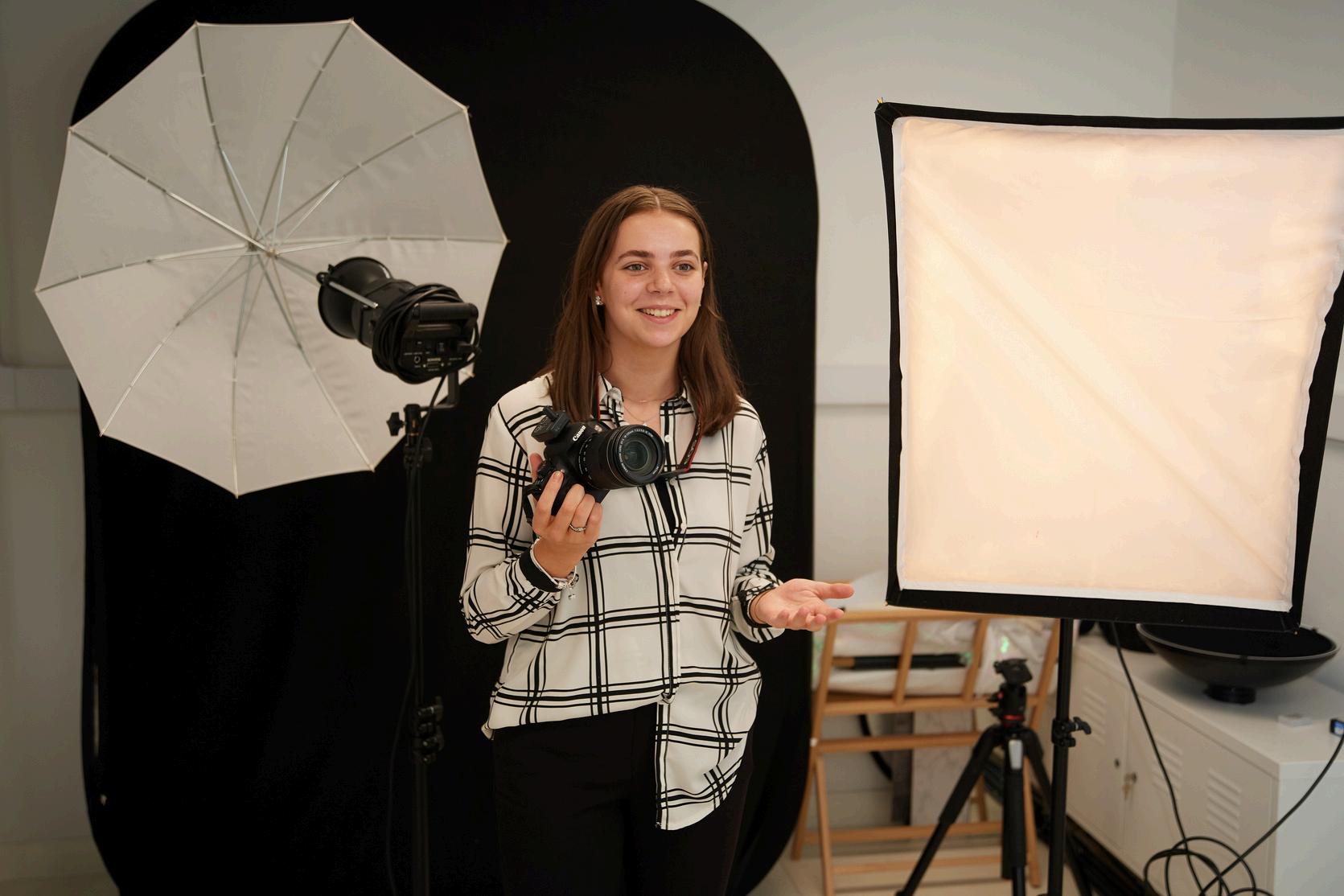
Photography could be a desirable choice if you:
• Love being creative
• Have an eye for detail
• Are happy working hands on and digitally

• Like working independently and collaboratively
• Enjoy researching and analysing images
Students go on to study Art Foundation or degrees in Advertising, Commercial or Fine Art Photography, Graphic Design, Fashion and Digital Marketing, Film Studies, Photojournalism or other Creative and Media degrees.
Leading people in any field are those who can think creatively and innovatively. In fact, a strong artistic background can cultivate many transferable skills such as: creativity, problem solving, organisation, time management, resilience and communication, and support the ability to be able to confidently express ideas, feelings and concepts.
The course is extremely diverse; it allows you to explore and enhance your own sporting ability, but also bridges the academic divide between the Arts and Sciences. We will be addressing current contemporary issues in sport, the psychology of sport and the impact of exercise on the human body. We are seeking students who are committed to performing or appreciating sport at a high level and are keen to use the theory of sport to develop their performance.
Assessment
Component 1: Scientific Principles of Physical Education
Applied anatomy and physiology
Exercise physiology and applied movement analysis
This unit is assessed by a 2 hour 30 minute written examination (40% of A Level)
Component 2: Psychological and Social Principles of Physical Education
Skill acquisition
Sport psychology
Sport and society
This unit is assessed by a 2-hour written examination (30% of A Level)
Component 3: Practical performance
Skills performed in one physical activity as a player/performer OR Skills performed in one physical activity as a coach (15% of A Level)
Component 4: Performance Analysis
Coursework (15% of A Level)
Enrichment Opportunities
Sports Tours
Sports Leader Award
Umpiring Qualifications
Coaching Awards
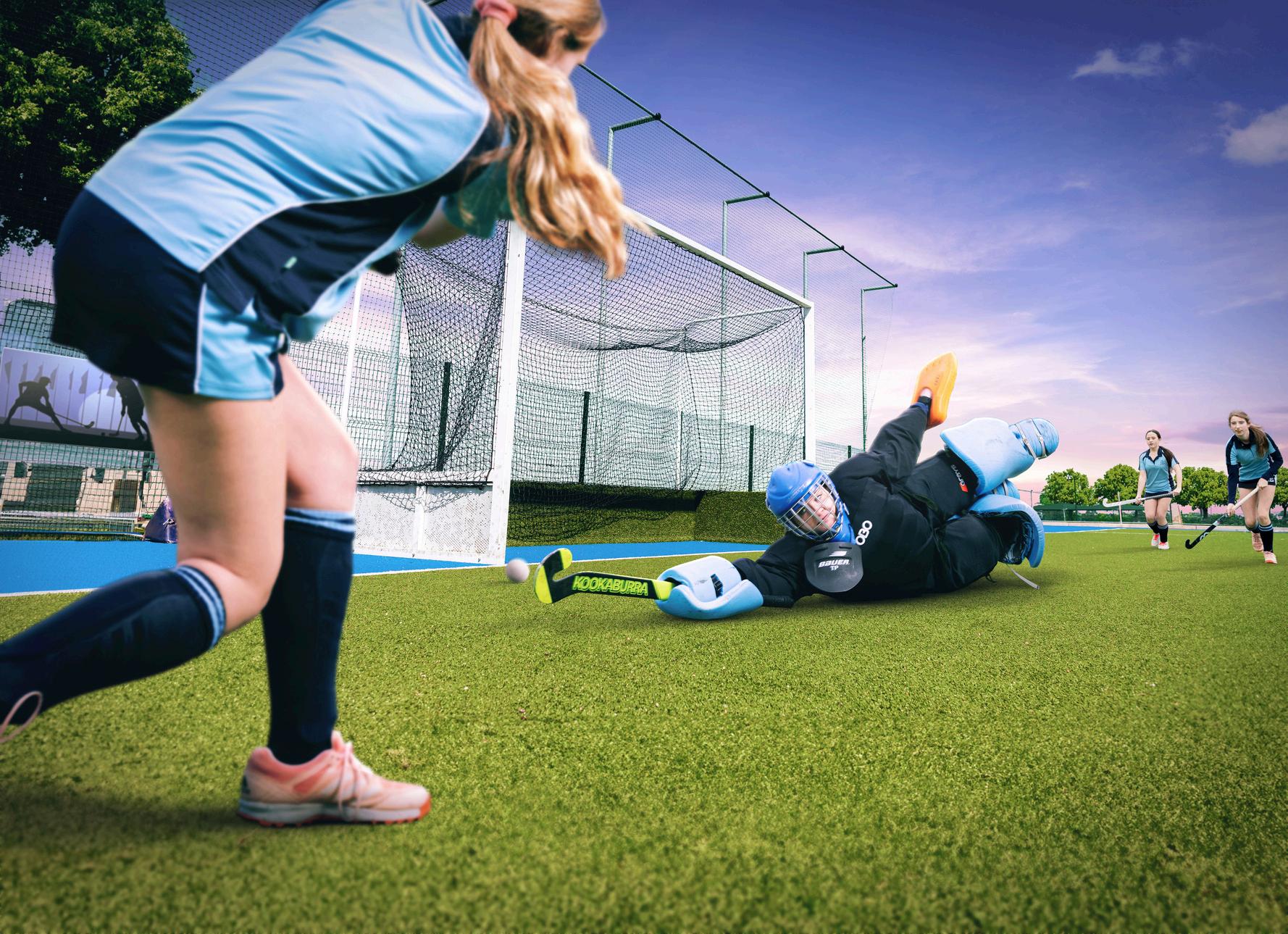

Are you passionate about sport?
Are you interested in how factors such as personality, arousal, anxiety and aggression can affect your performance?
Do you want to know how to achieve optimal levels of performance through diet and nutrition, training methods and injury prevention?
Are you aware of how society has shaped the sport you love?
Are you interested in how our bodies can push themselves to their physical peak?
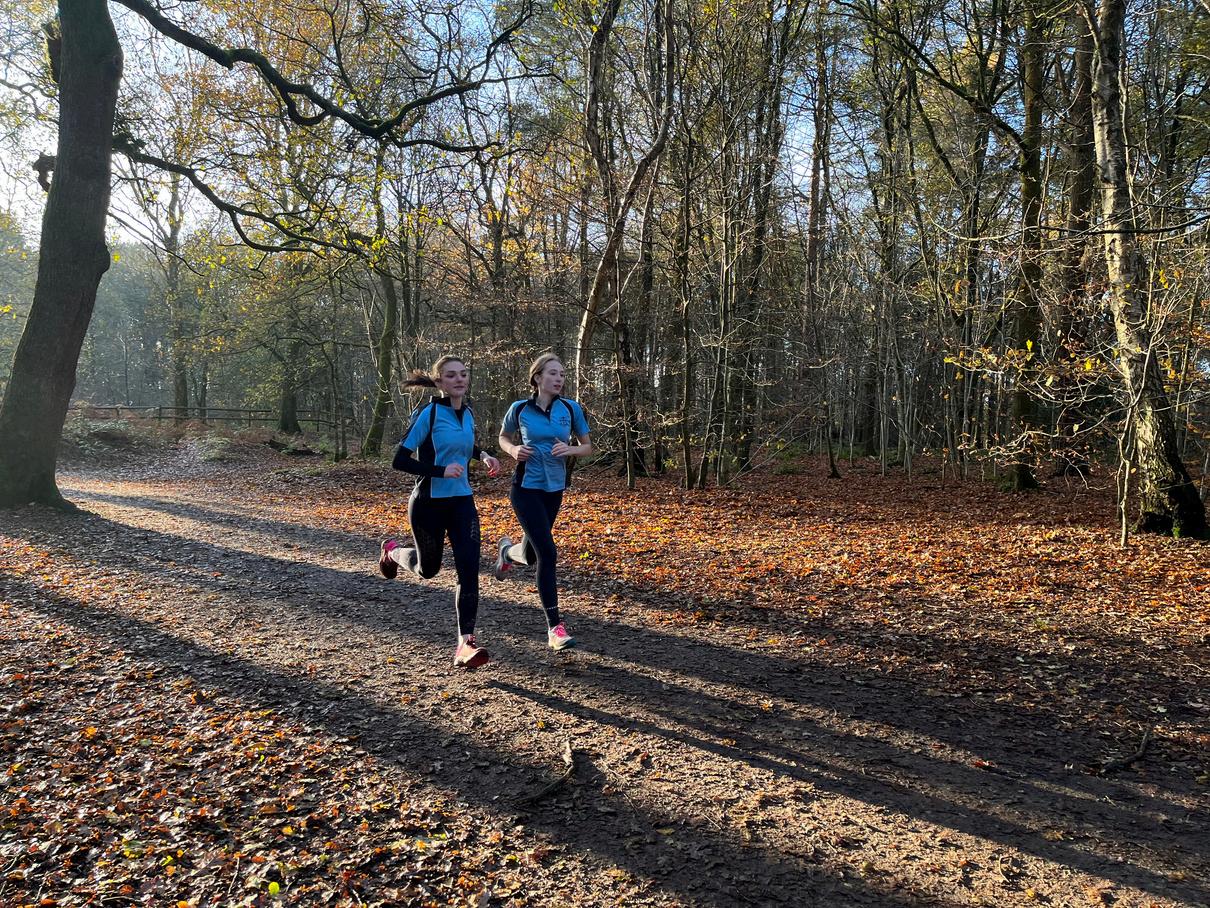
If the answer is yes to any of the above, then A Level Physical Education is the perfect choice for you.
A Level PE enables you to apply for Higher Education courses in Sports Science, Sports Management, Healthcare, or Exercise and Health. A Level PE can open a range of career opportunities including sports development, sports coaching, physiotherapy, sports journalism, personal training, occupational therapy or becoming one of the next generation of PE teachers. The transferable skills you learn, such as communication, analysis, evaluation, application and independent thinking are useful in any career path you choose.
The course builds upon the foundation knowledge of GCSE and begins by looking at these ideas in greater detail to deepen understanding. The second year of the course seeks to bring in more advanced concepts and stretch mathematical skills. Alongside the knowledge to be learnt, we also seek to re-affirm ideas with practical work whenever possible.
Three written examinations: all two hours long and contributing an equal amount to the final mark. Required practicals are carried out throughout the duration of the course and these practical skills will be assessed in the written papers.
Undertake a Gold CREST Award project which is self-directed and immerses you in real scientific research.
Take part in the Physics Challenge and the Astro Challenge to test your problem-solving skills against students both nationally and internationally. Alternatively, you can undertake the Experimental Project which provides hands-on experience into how experimental research is carried out.

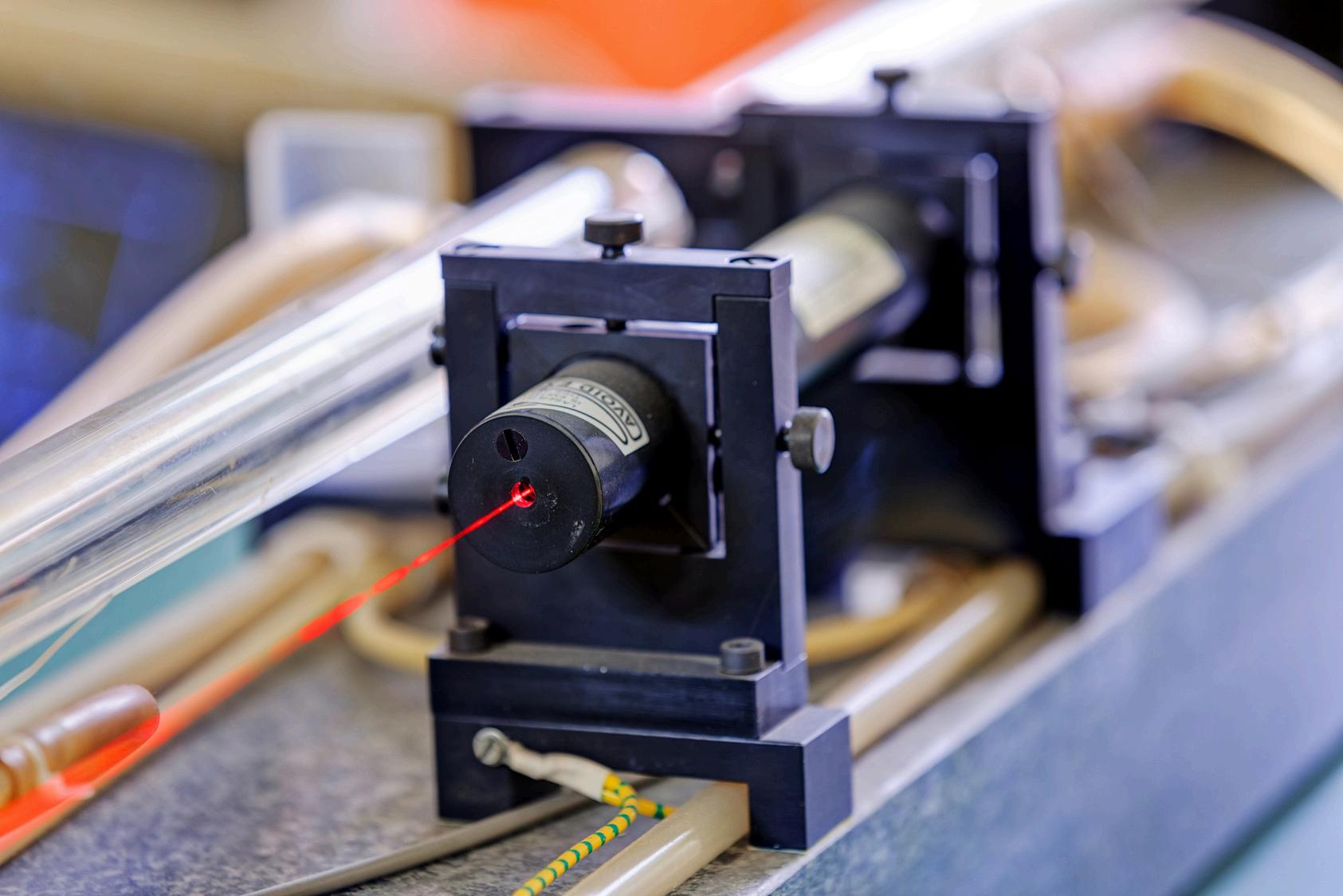
If you are curious about the world around you and seek to understand how things work, then Physics is the course for you.
The world we live in is increasingly full of technology and innovation, Physics lies at the heart of this advancement in our daily lives.
Studying Physics helps us to gain an understanding of how things work on a fundamental level.

A Physics education not only teaches you about science, but also builds key skills in Mathematics and the ability to think in a logical fashion and work through complex problems.
A Level Physics is a highly regarded qualification, leading to opportunities not only in science and engineering, but also in areas such as accountancy, banking and finance.
As we explore the course we cover a range of topics from the concept of attachment in small children to the psychological study of memory. We build a picture of the theory of the subject and then apply it to real-life situations such as the treatment of mental illness and issues surrounding the use of eyewitness testimony in court. Bring along your curiosity and inquiring mind! Practical work is integrated into the study of this subject and enhances learning and understanding without formal assessment. Psychology certainly provides something to interest and enthuse everyone.
Assessment
A Level Unit 1: Social influence, Memory, Attachment and Psychopathology. Unit 2: Approaches in Psychology, Biopsychology and Research Methods. Unit 3: Issues and debates in Psychology, Cognition and Development, Schizophrenia, Forensic Psychology.
Enrichment Opportunities
Research and Extension club. There is also the opportunity to participate in theatre trips, and to attend webinars with influential speakers and researchers.

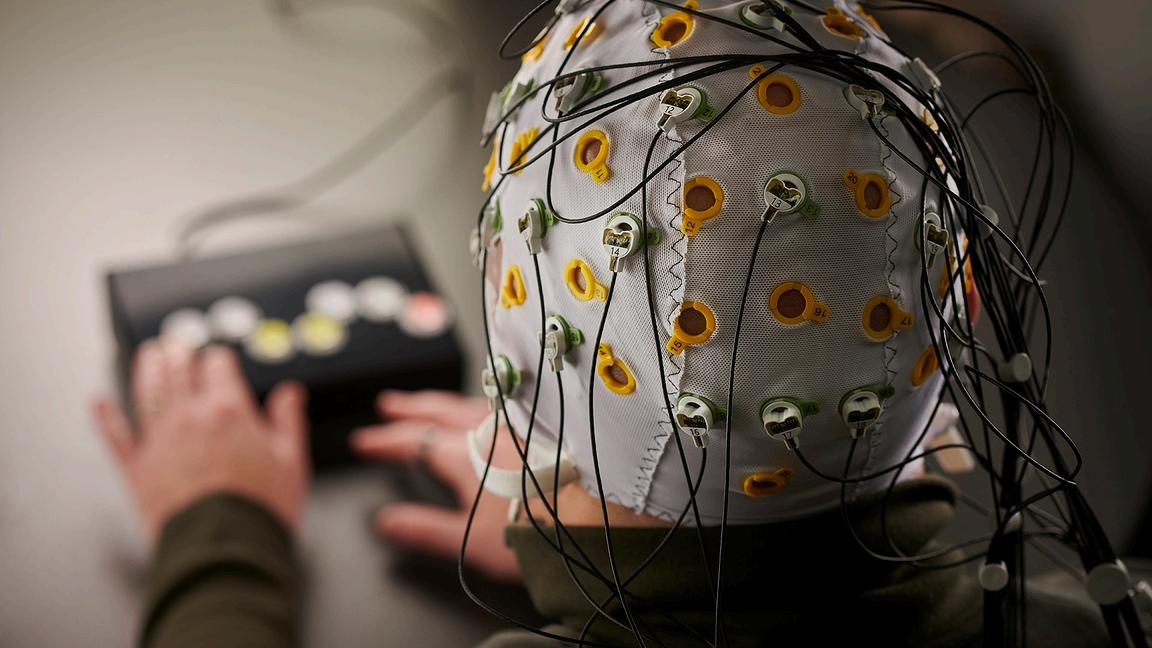
The human brain and the way it operates and can be manipulated is the most fascinating and exciting area to work in.
The topics studied have real relevance to life and every behaviour humans demonstrate.
Psychology prepares you for the world of work and can also be applied to the everyday world around us.

University places in Psychology are often at a premium. Psychology leads naturally into areas of work such as Human Resources, Advertising and Management. It also works well for those aiming to study Medicine.
Psychology helps anyone who intends to have human contact, whether that be with colleagues, clients, bosses, family or even friends.
During the course you will improve your analytical skills and your ability to think outside the box. Religious Studies requires you to be able to put yourself in another person's shoes and argue a case from their point of view. It involves discussion and debate, communicating with precision and clarity, and tackling the big issues with sensitivity.
There are three components:
Ethics: This involves an in-depth study of what is right and wrong, what these terms mean and the different ethical theories philosophers have developed, e.g. Utilitarianism. We also look at moral issues such as relationships, animal testing and nuclear weapons.
Religion: This involves an in-depth study of the Christian religion, including its history, belief practices and place in a 21st Century society.
Philosophy: This involves an exploration of key universal questions, e.g. Is there a God? Are we free?
Why do people suffer?
In the past we have benefited from discussions with visiting speakers.


Do you ever wonder why does evil exist?What is the purpose of life? Why does God exist? How do we know what is morally right?
In Religious Studies we tackle the ultimate questions in life! If these questions intrigue you then Religious Studies in the right subject for you.

A Level Religious Studies enables you to apply for Higher Education courses in Humanities, Social Sciences, Languages, Theology, Business and many more. The transferable skills you learn, such as communication, analysis, evaluation, and independent thinking are useful in any career path you choose. Achieving an A Level in Religious Studies will demonstrate to employers and universities that you are open minded and can engage with complex ideas, analyse multifaceted arguments and effectively communicate ideas.
A Level Spanish builds upon your existing knowledge gained at GCSE, giving you a sound understanding of how to use your language in a variety of contexts and situations. You not only study the language but also learn more about the Spanish speaking world via the language. In a typical year, we cover such topics such as:
Benefits of Technology, Food, The Influence of modern-day idols, Art & Architecture, Equality and Feminism, Multiculturalism, Traditions and Culture and Politics and the Monarchy. In addition, you will study a Spanish film and read a Spanish novel or play.
There are 3 papers.
Paper 1 is a listening, reading and writing paper (2 hours 30 minutes), which accounts for 40% of the A Level grade.
Paper 2 assesses the study of one film and one book (2 hours), which accounts for 30% of the A Level grade.
Paper 3 is an oral examination (21-23 minutes) and includes a discussion on one of the subthemes, a presentation and a discussion on the individual research project. The oral accounts for 30% of the A Level grade.
Enrichment opportunities include visits to the annual Spanish Film Festival at HOME Manchester, study days at Manchester University, Spanish food tasting at tapas bars and the KS4 & 5 study visit to Madrid.


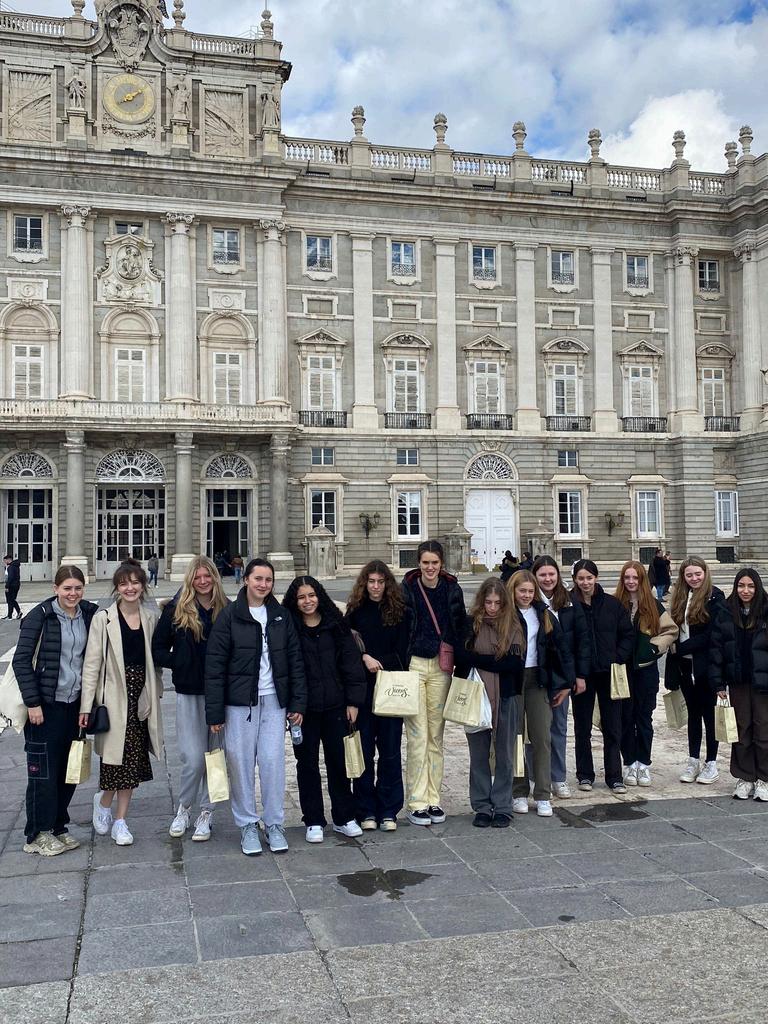
Spanish is a Global Language - Spanish is the second most spoken language by native speakers in the world, with more than 500 million Spanish speakers in 21 countries. It is spoken across four continents.
Spanish is a Language for BusinessSpanish has emerged as the most important business language for the UK in an analysis made by the British Council. With an everincreasing presence in the global market, emerging economies in the Americas mean that the chance of work and business opportunities from Spanish knowledge is increasing.
Spanish is a language for cultural enjoyment. Being able to speak Spanish can greatly enhance your experience when visiting Spanish speaking countries, enabling a greater understanding and appreciation of culture, history and the physical environment.
Having an A Level in Spanish will open so many doors for you. You may choose to read Spanish at university and even combine it with another language. Spanish can be combined with Business Studies, Drama, Linguistics, Politics, Philosophy, Law, even Biochemistry! Being able to speak Spanish makes you more employable and develops transferable skills such as communication, analysis, evaluation, resilience and confidence.
With an A level in Spanish you may find yourself working for a multi-national company such as Mango, as an interpreter at the United Nations or as a foreign correspondent for the BBC.
